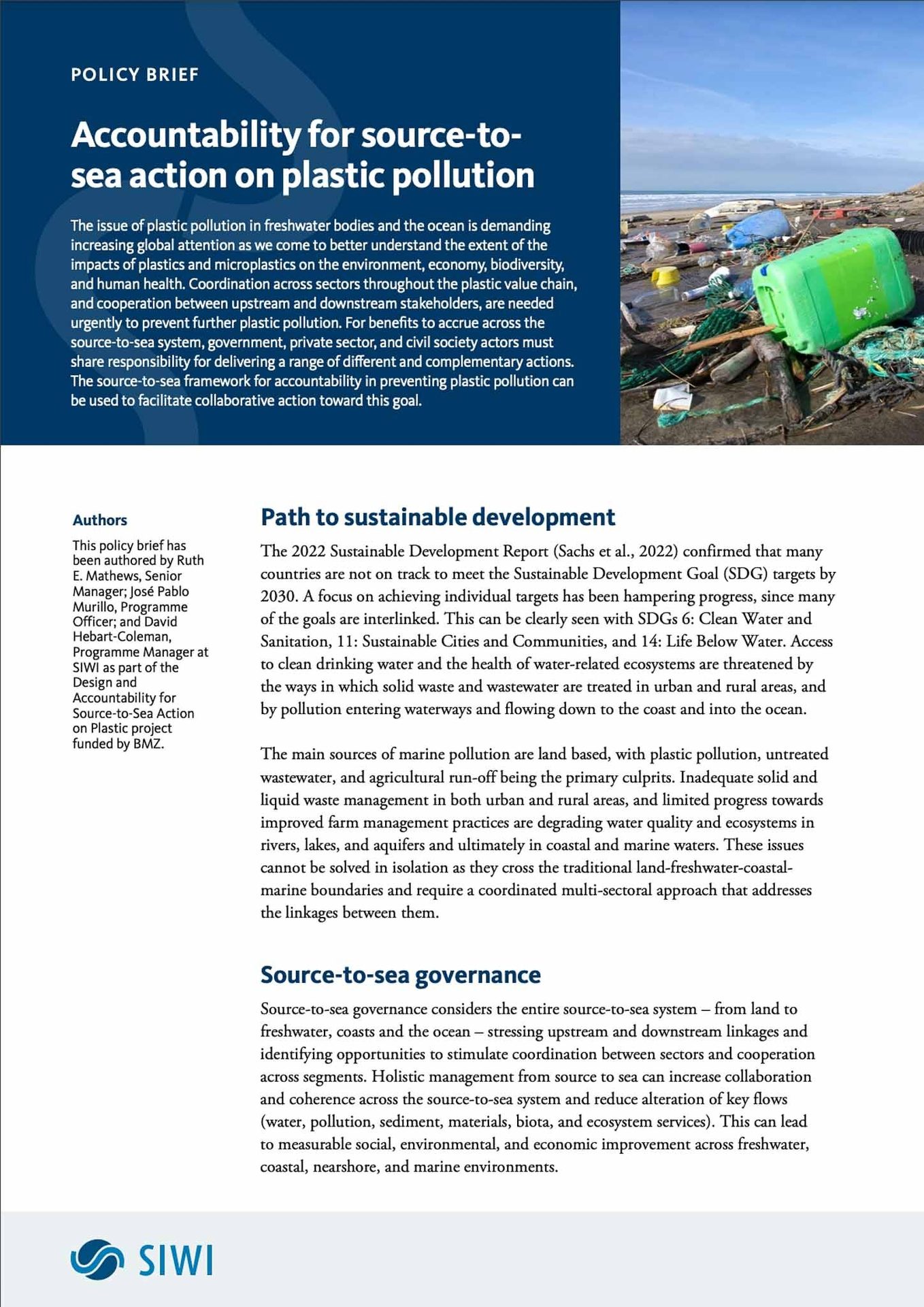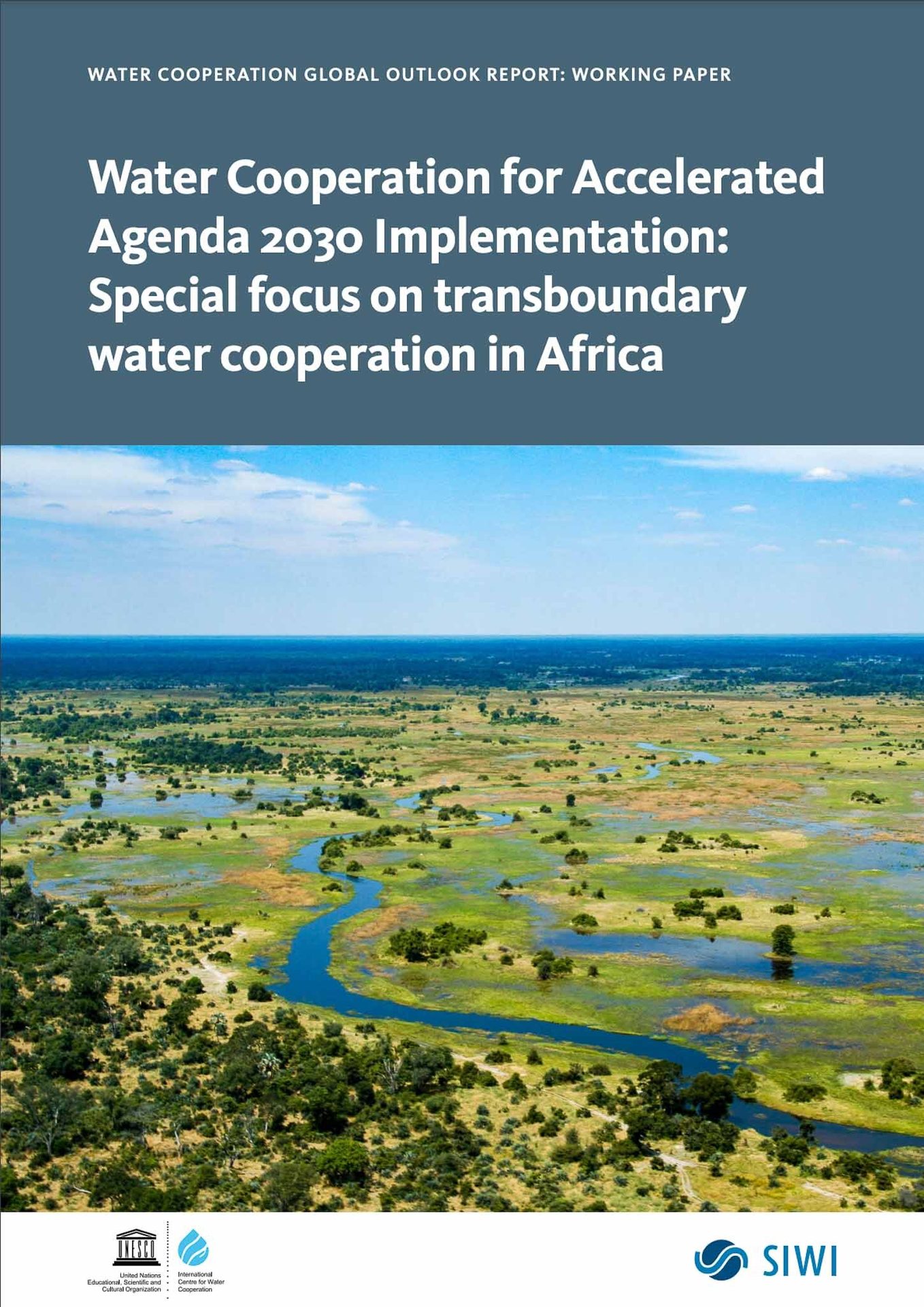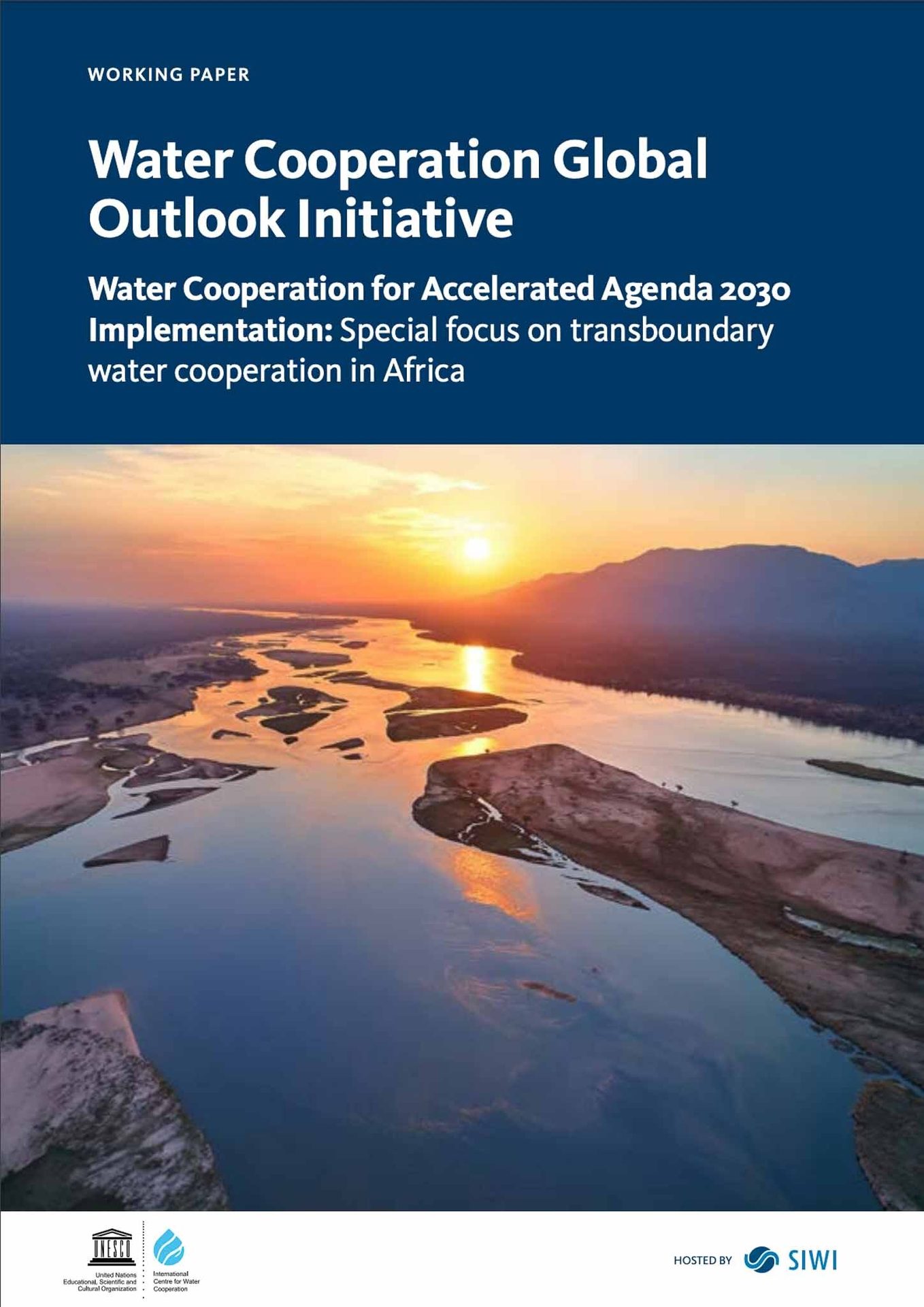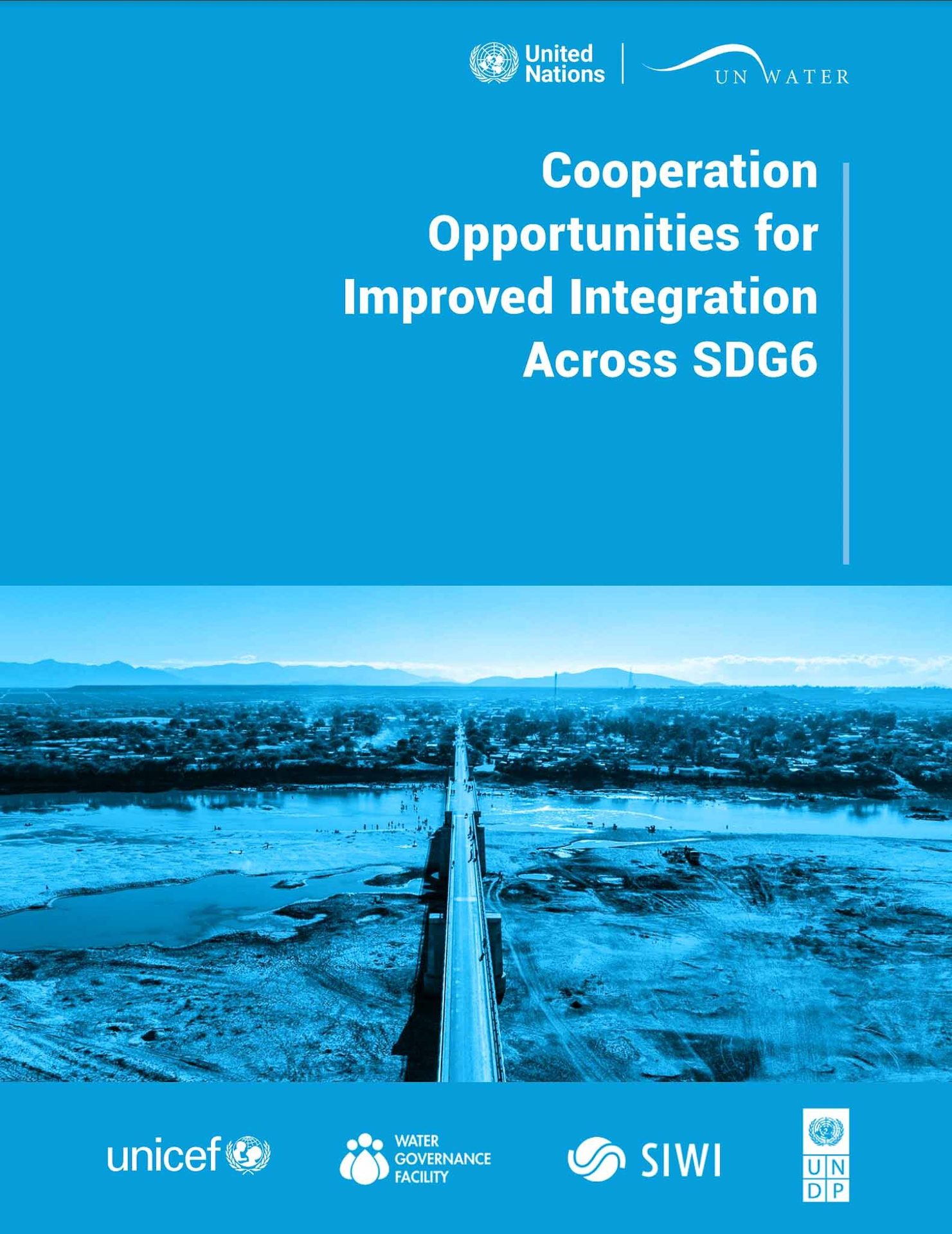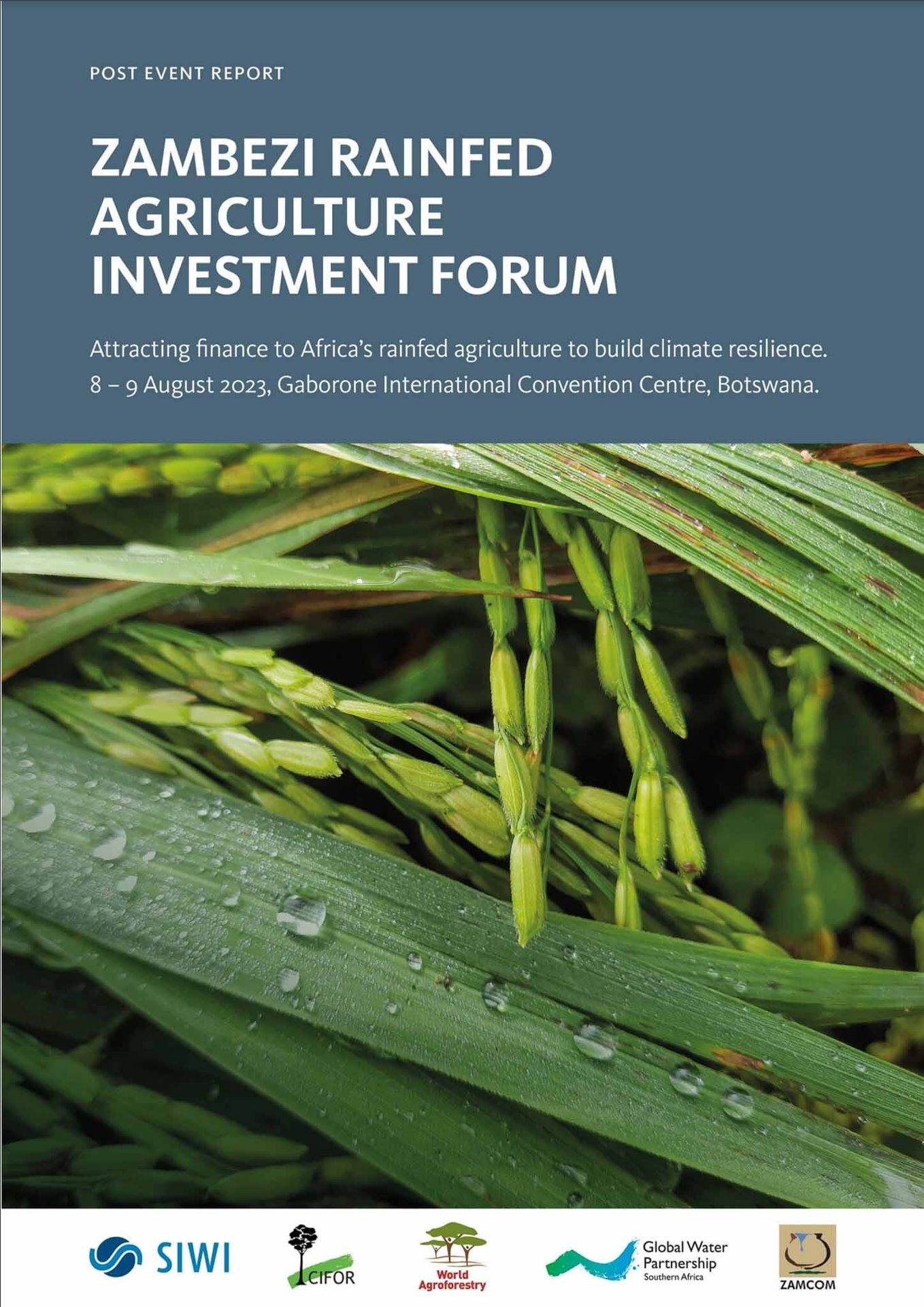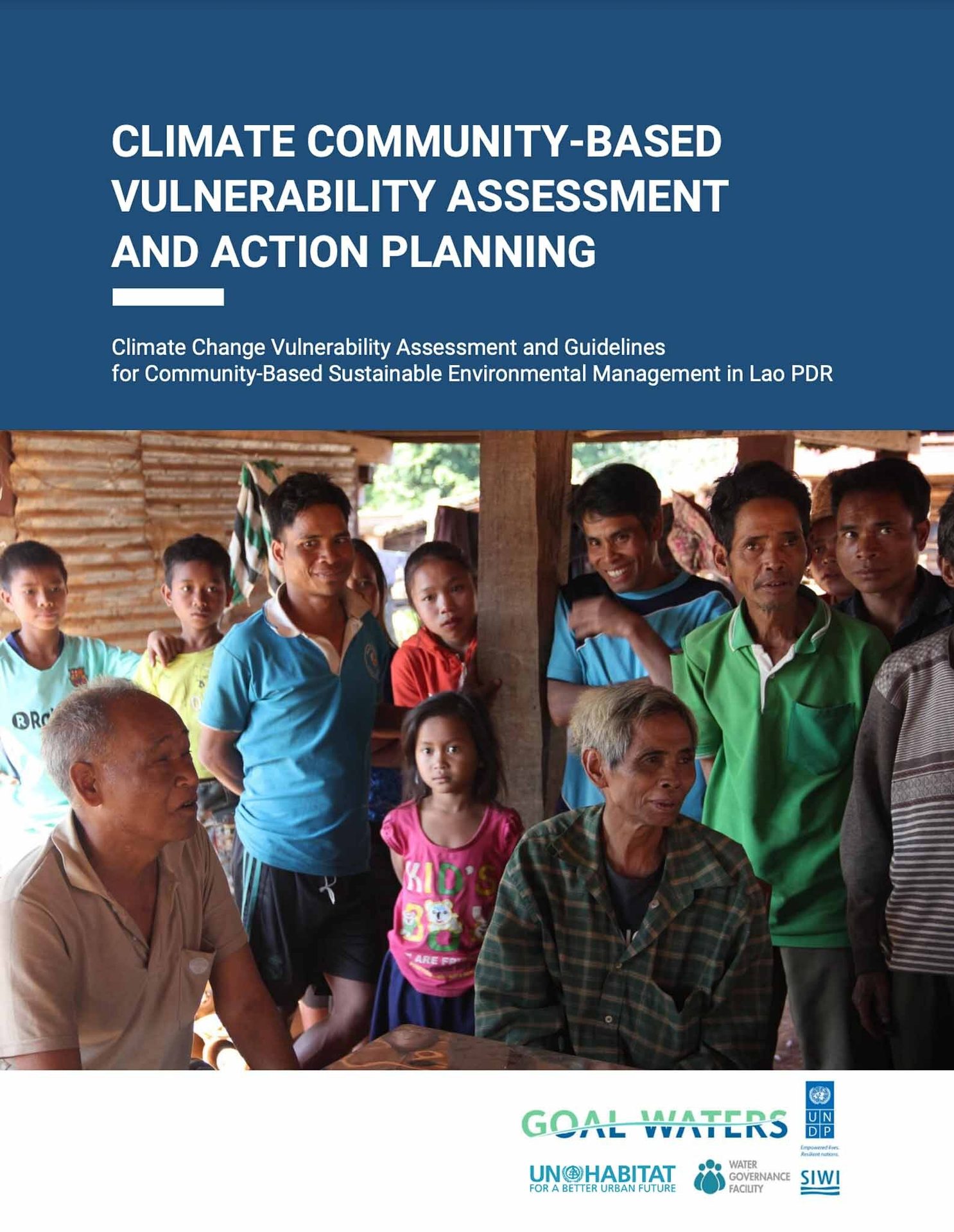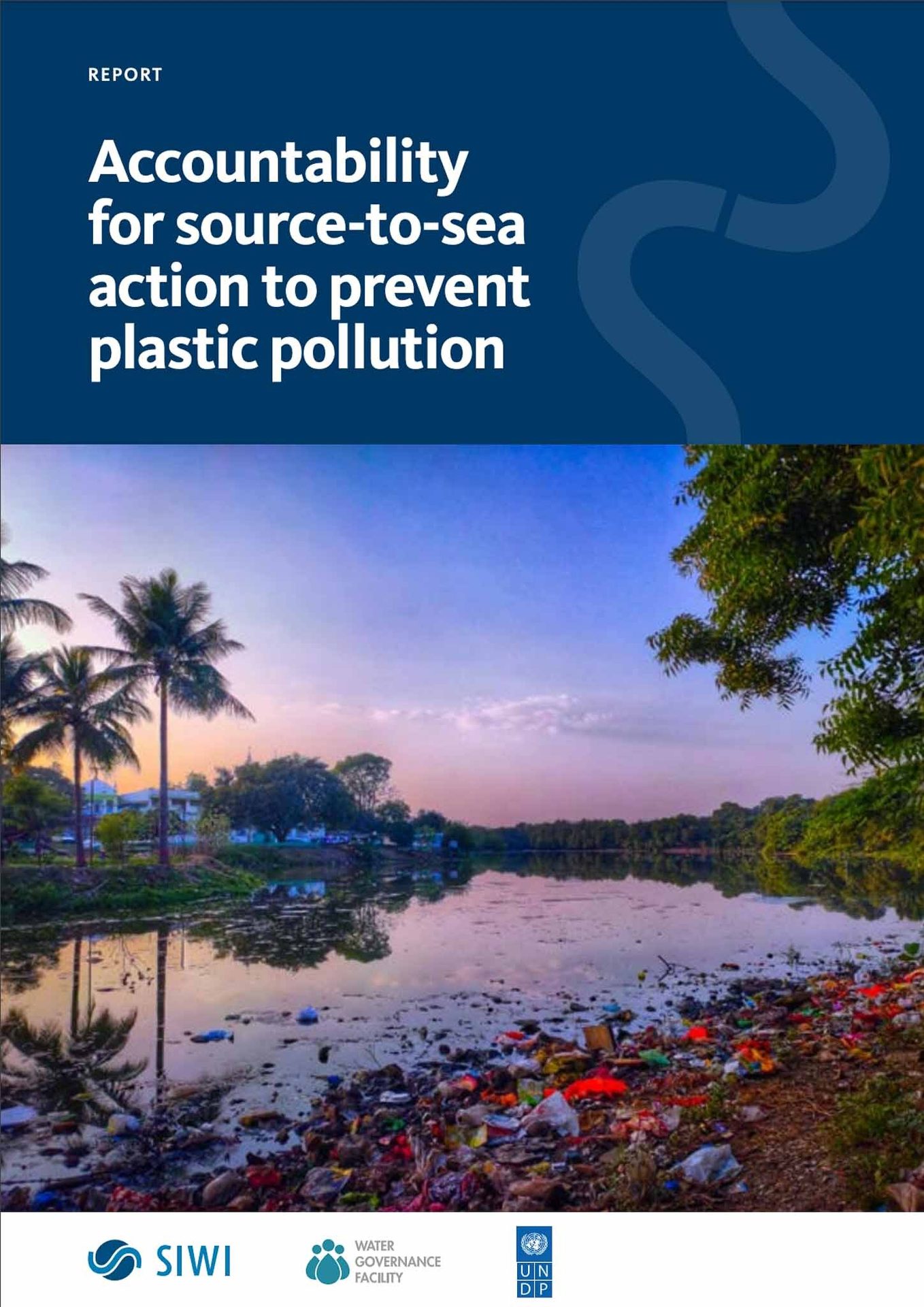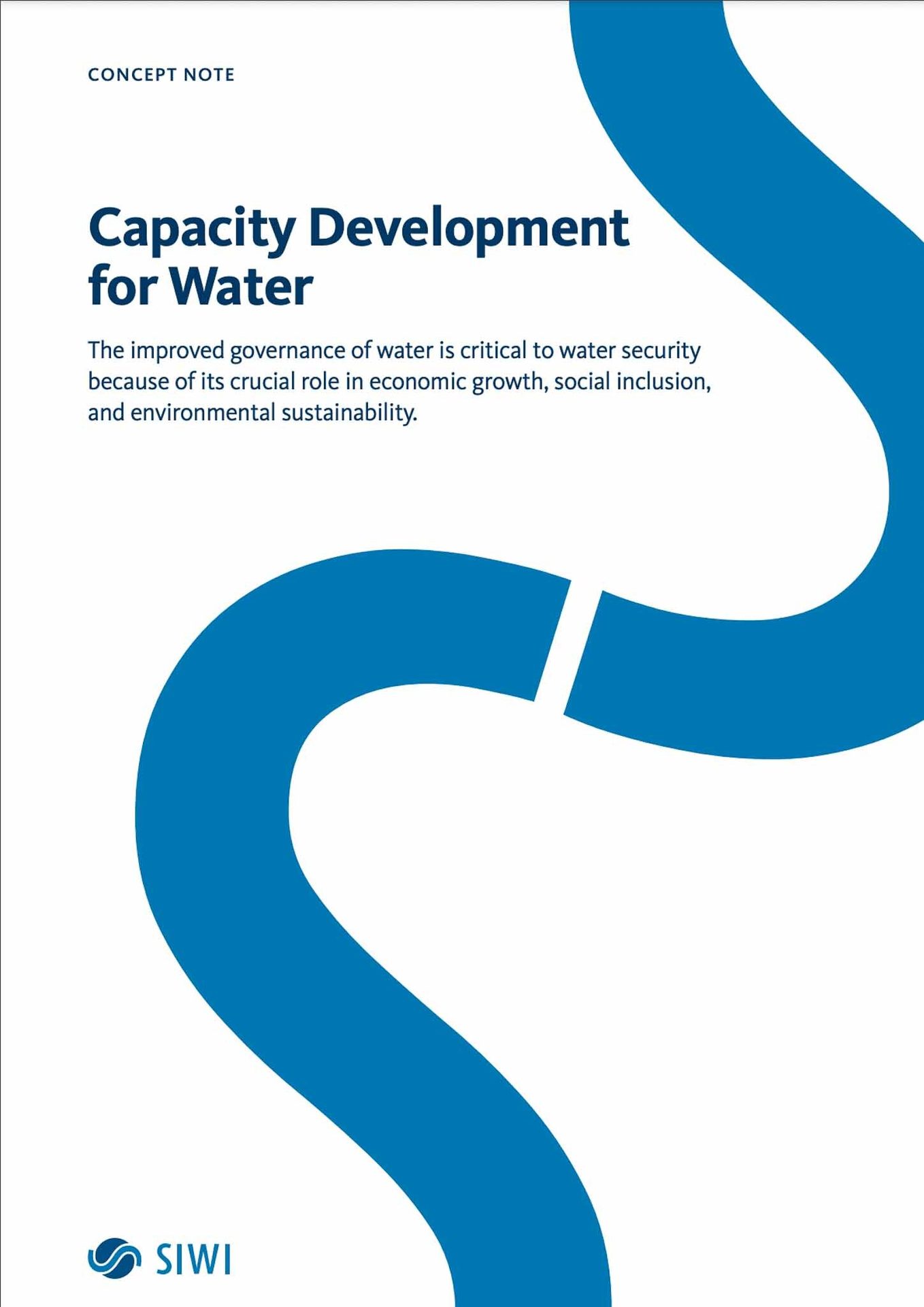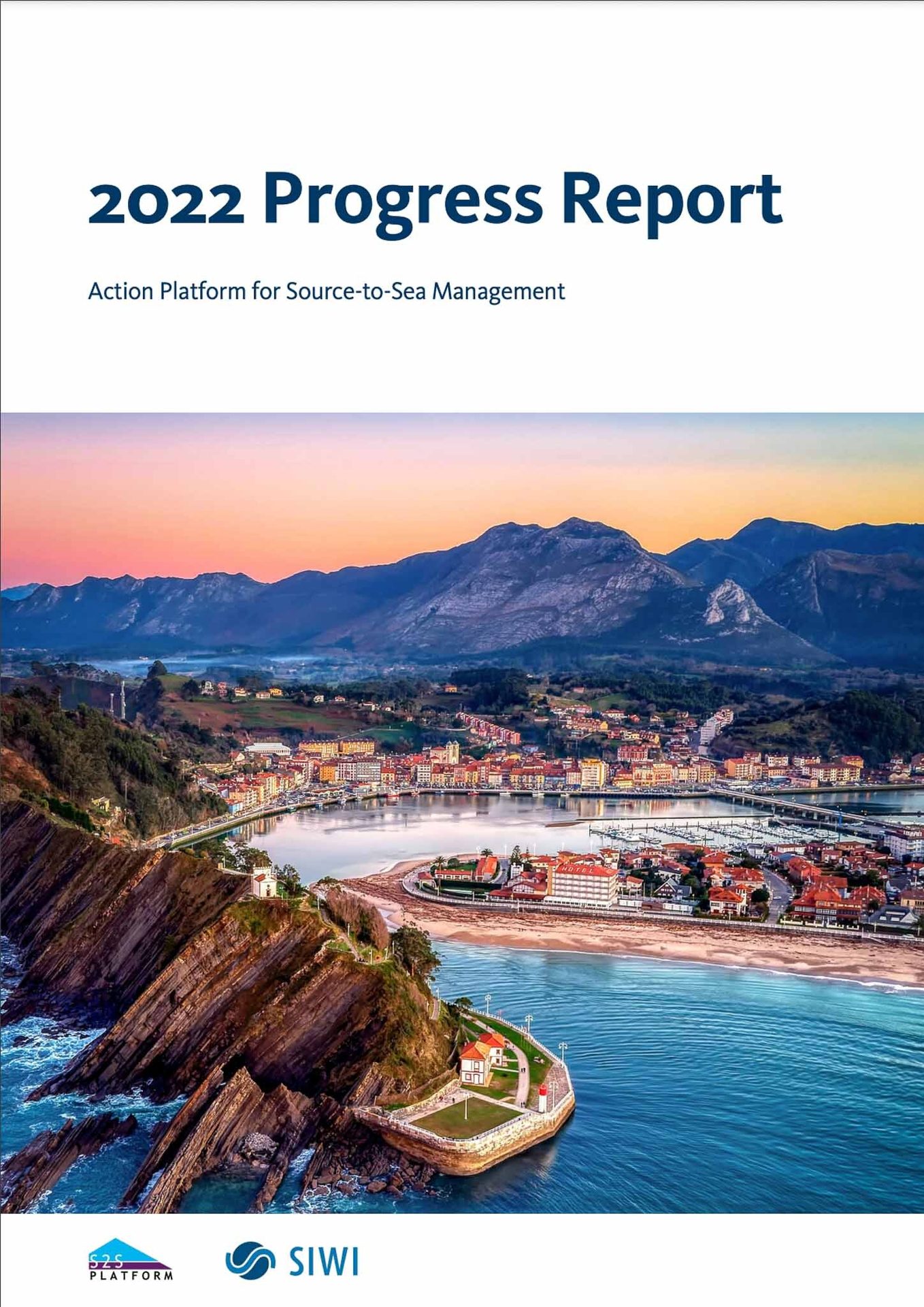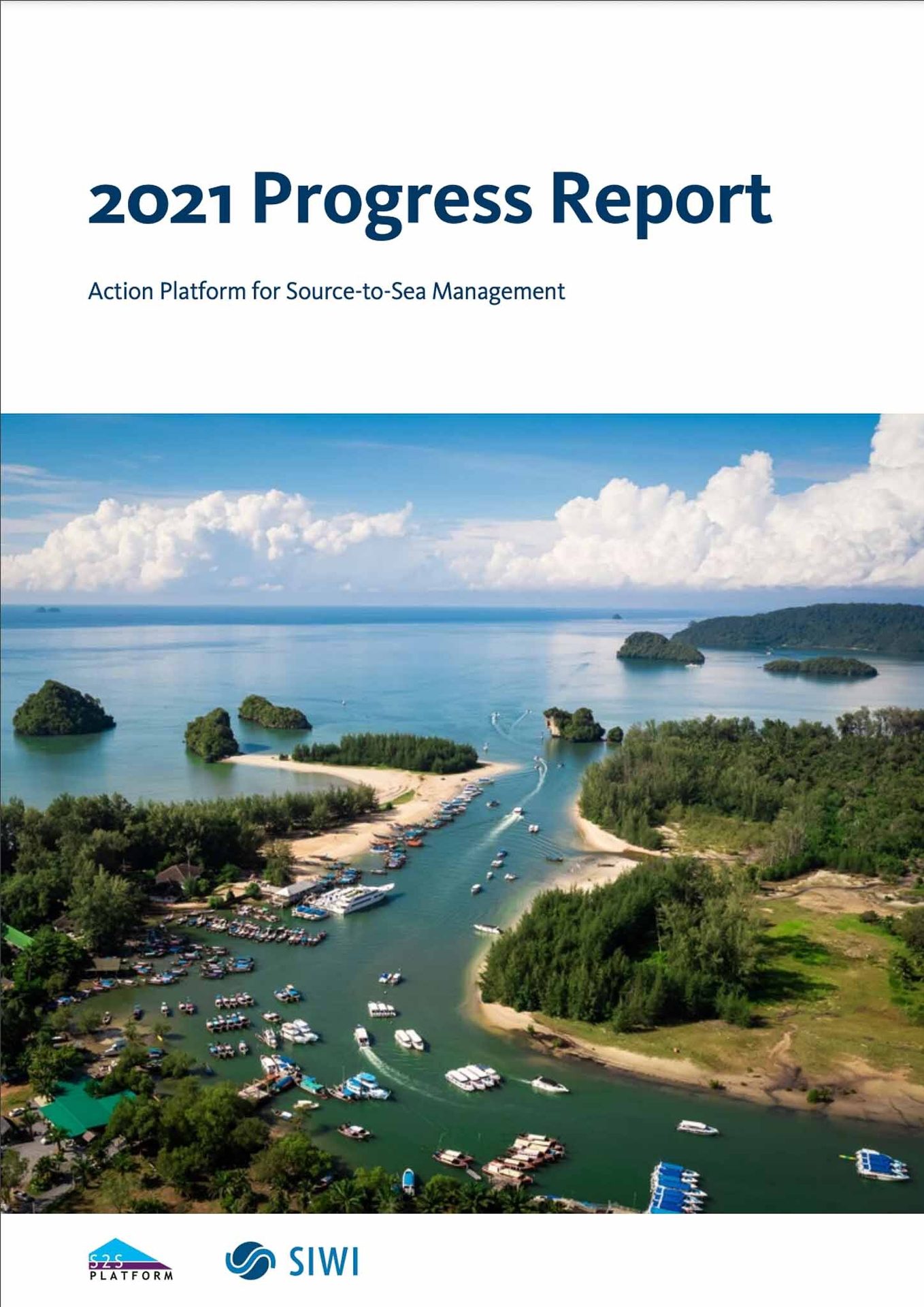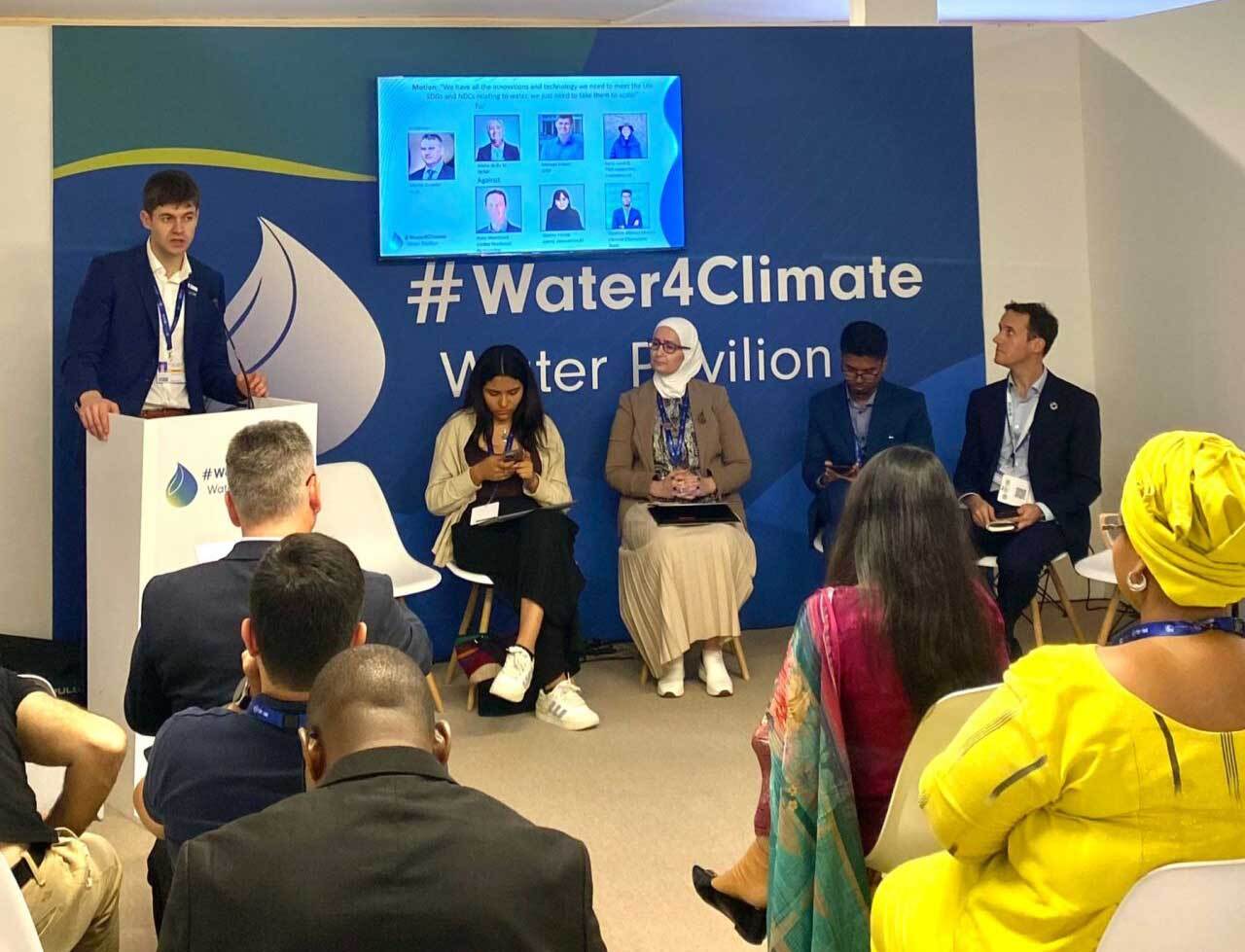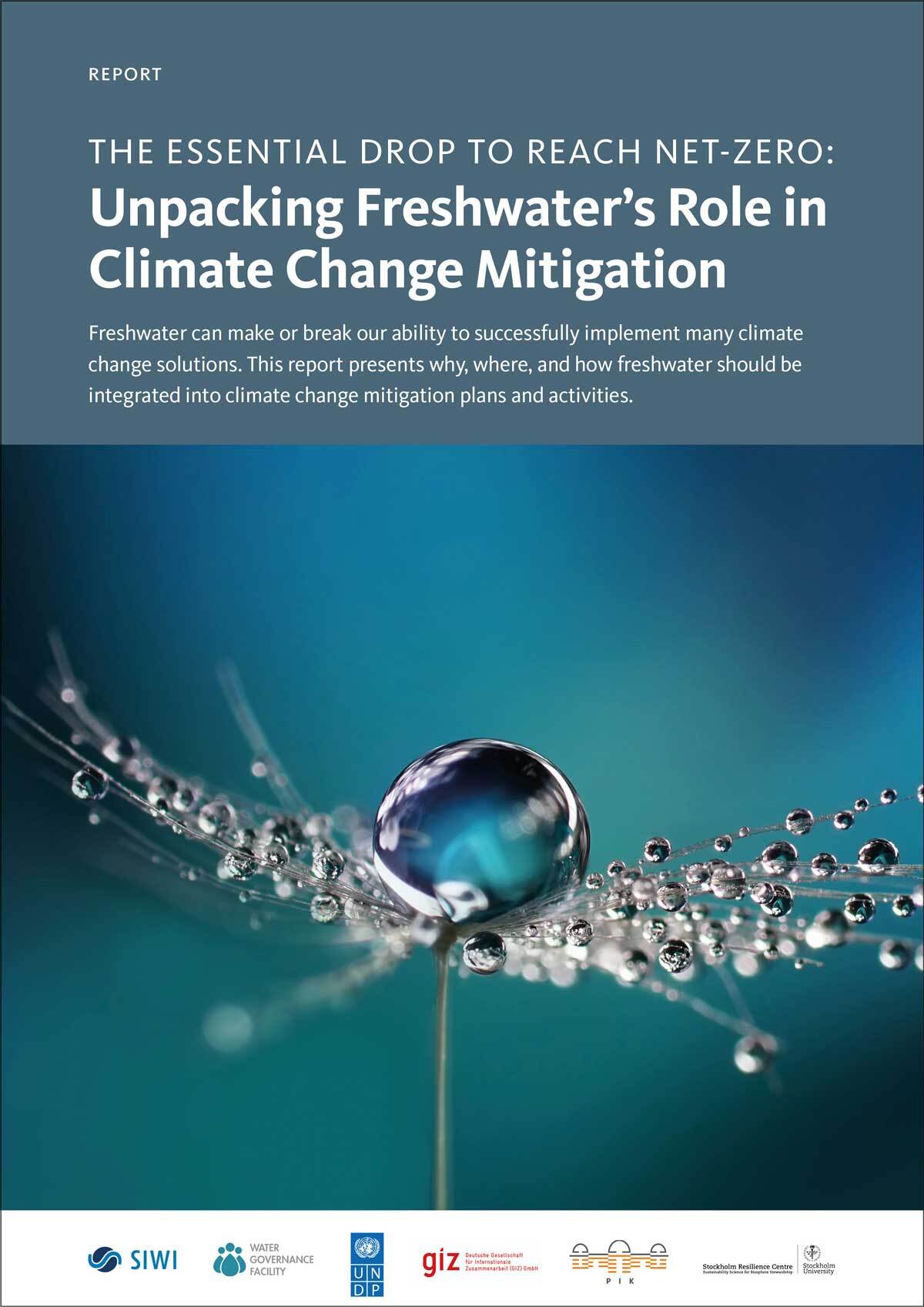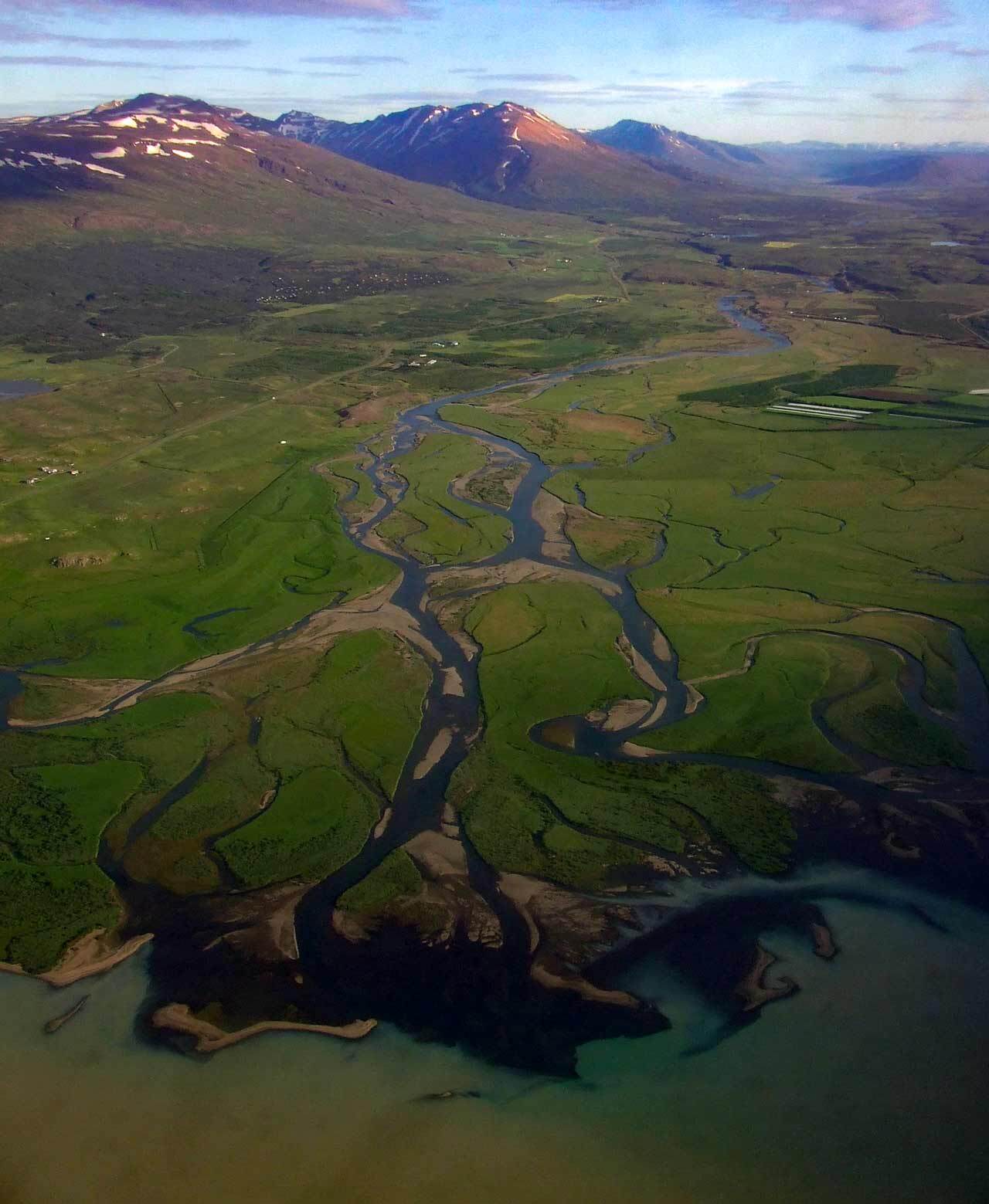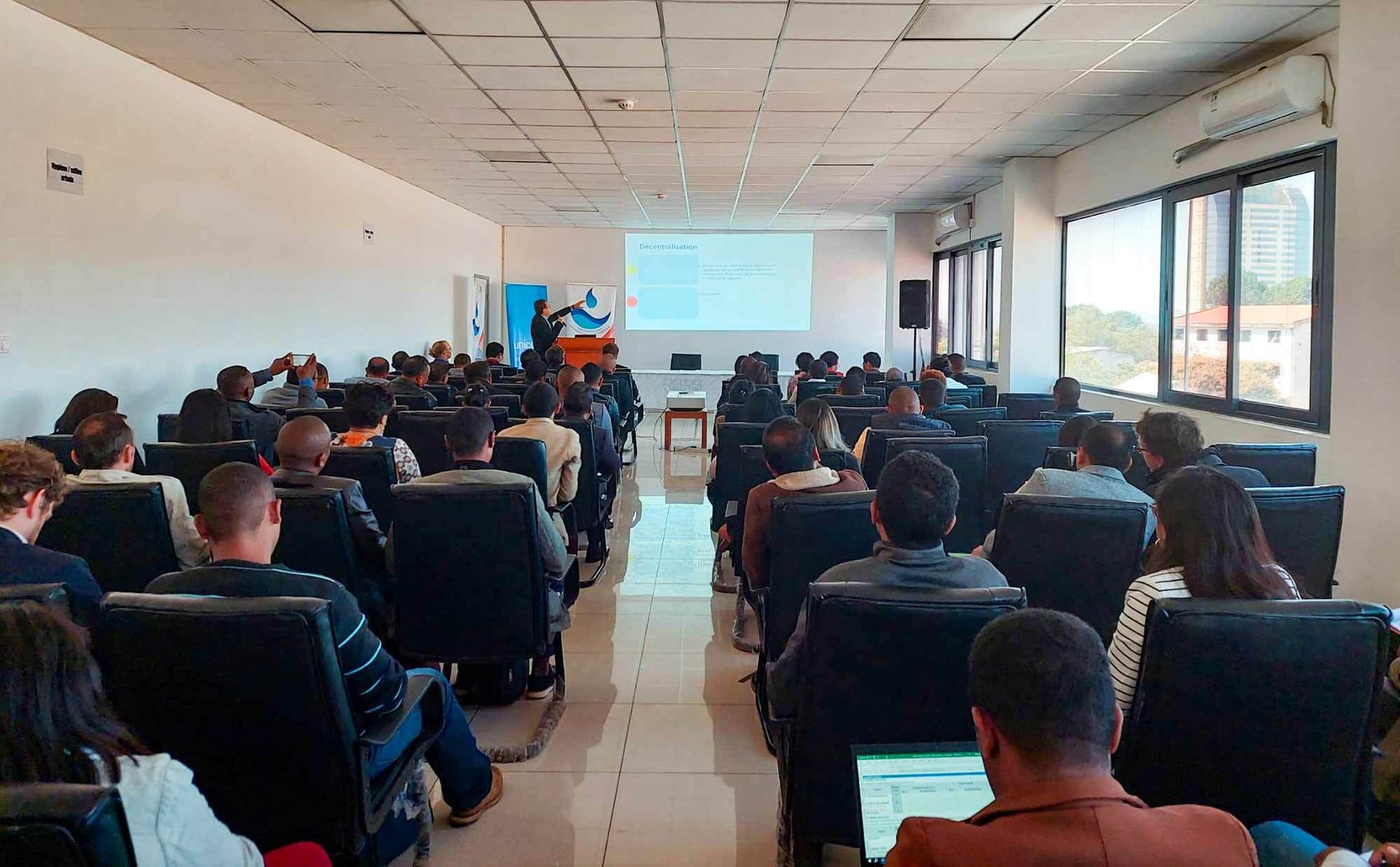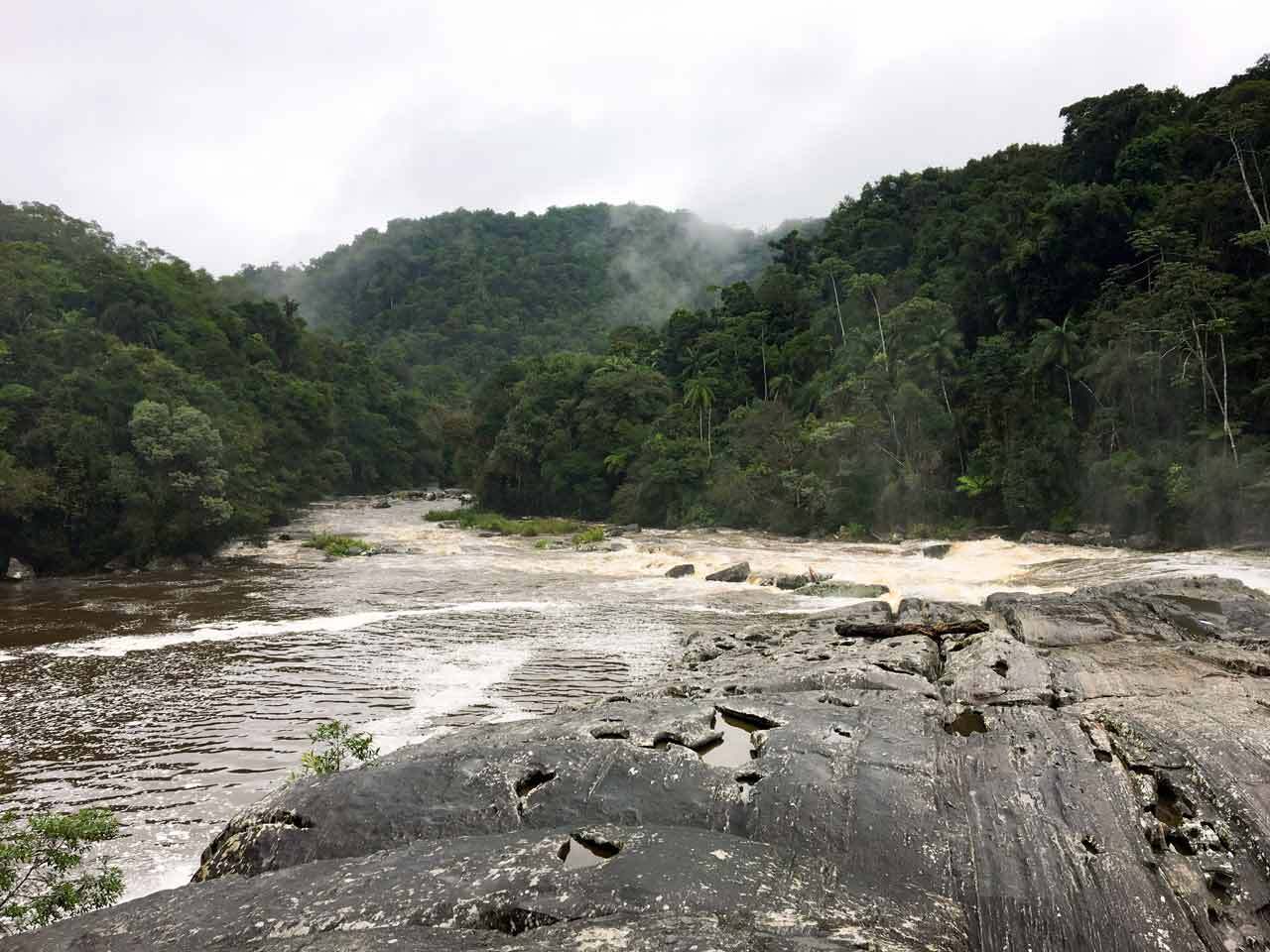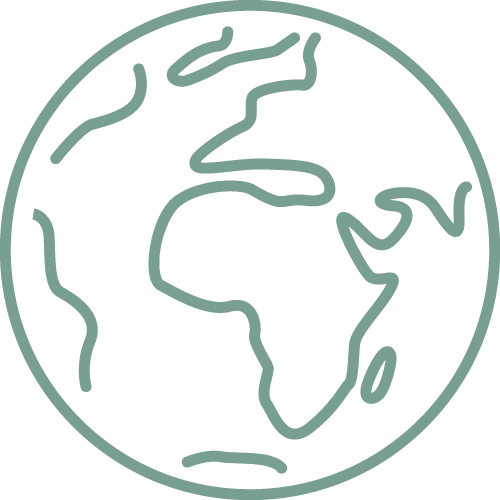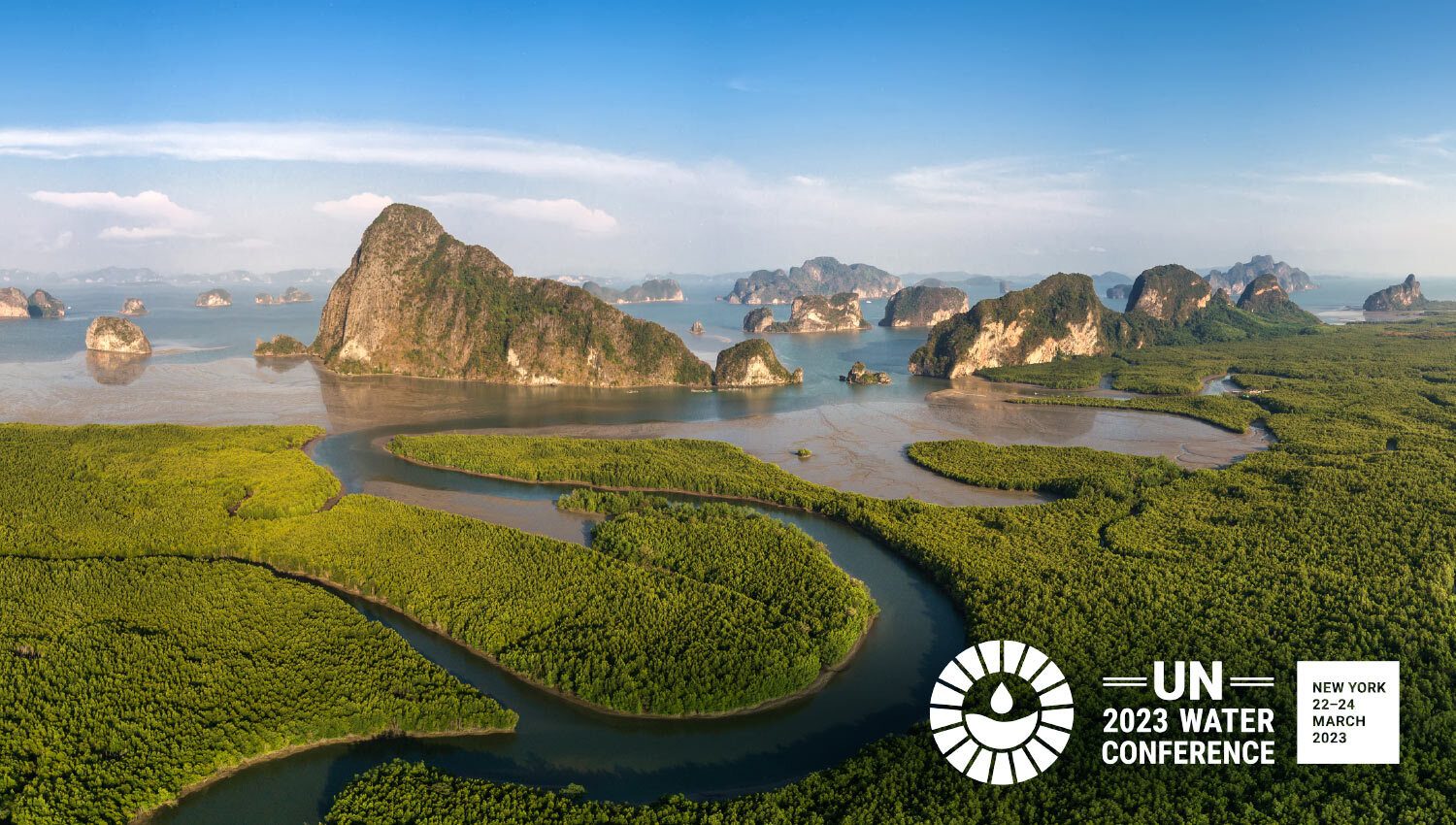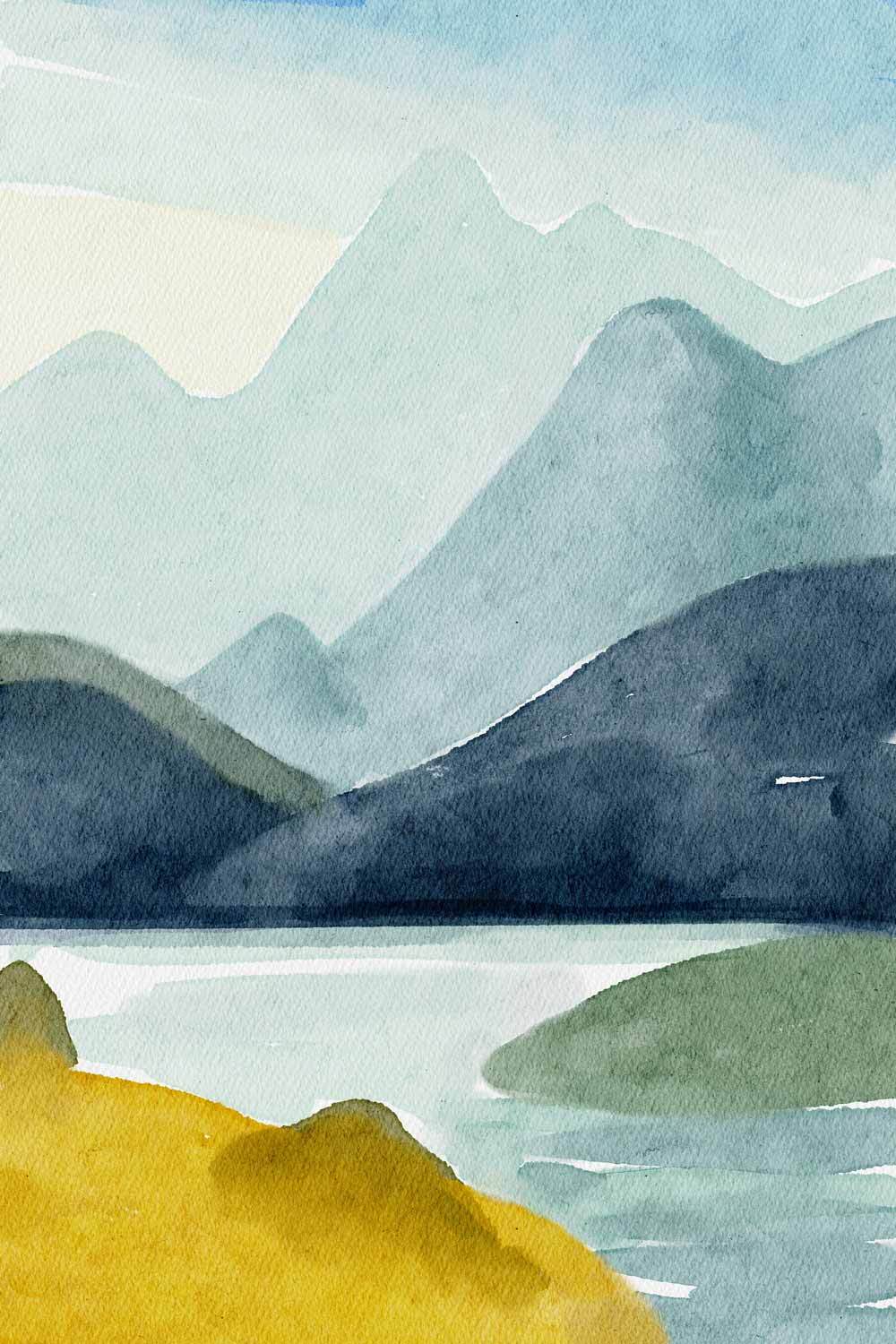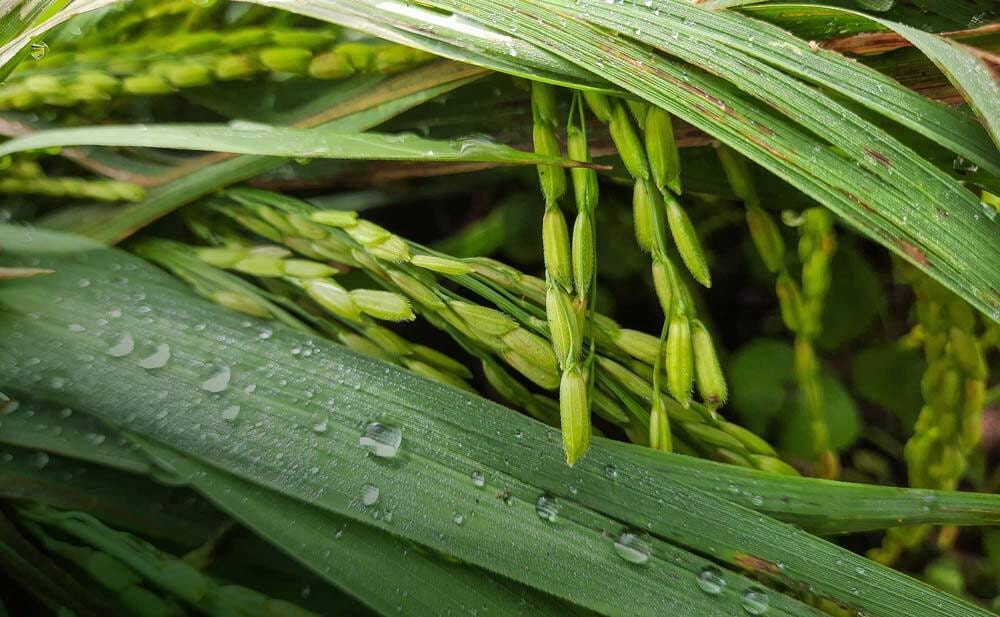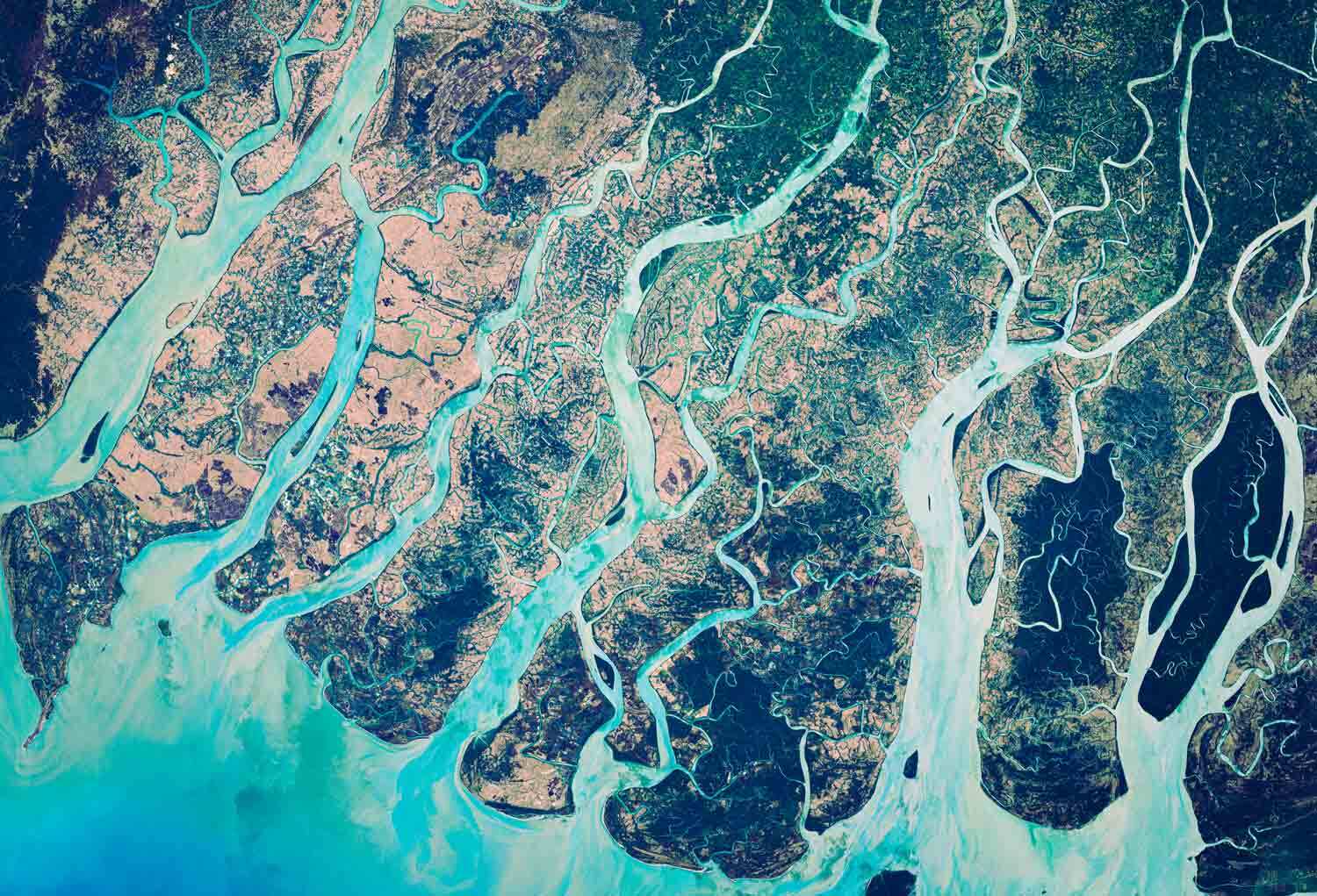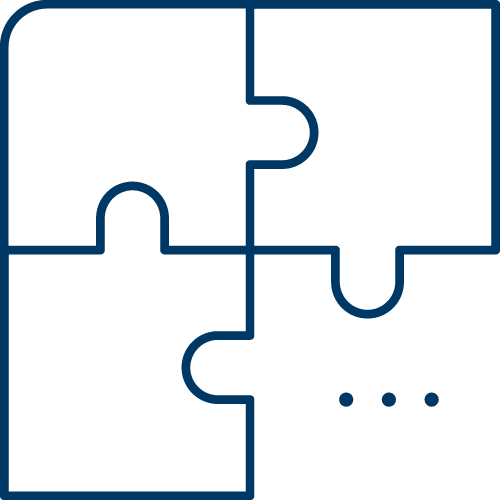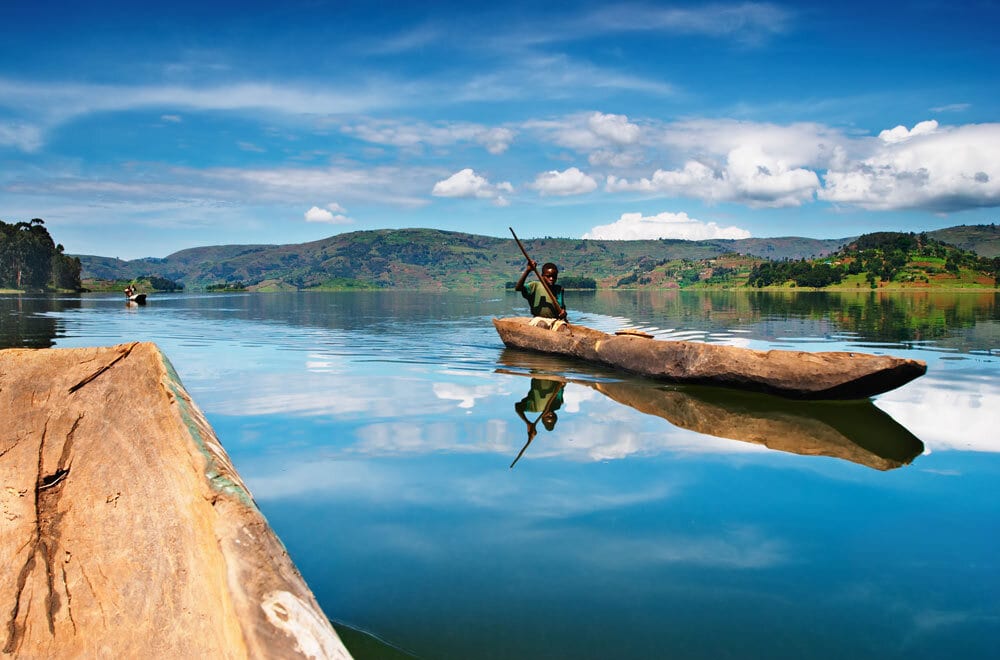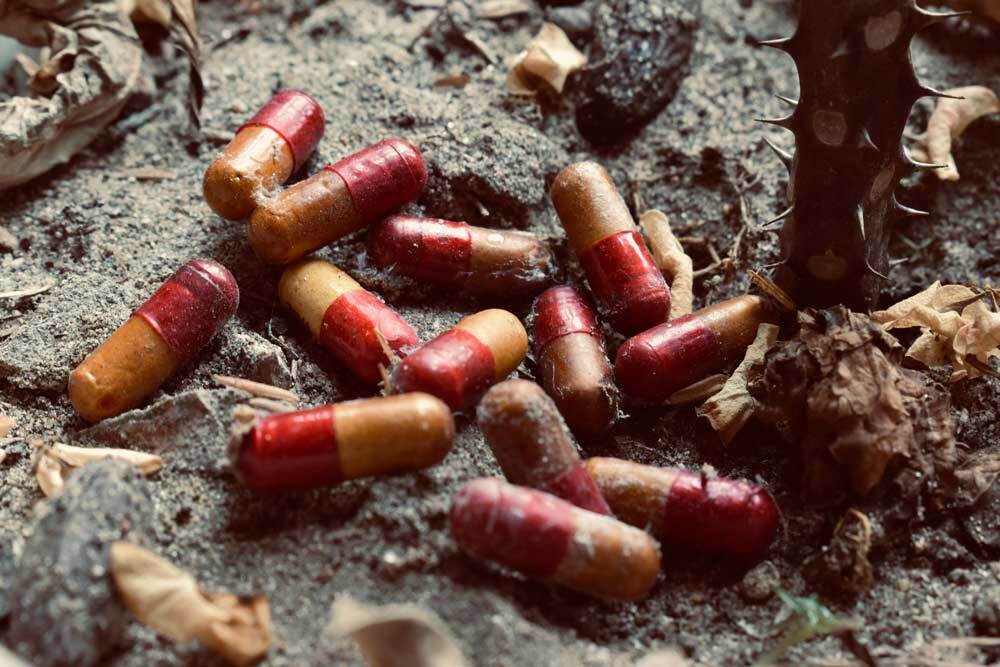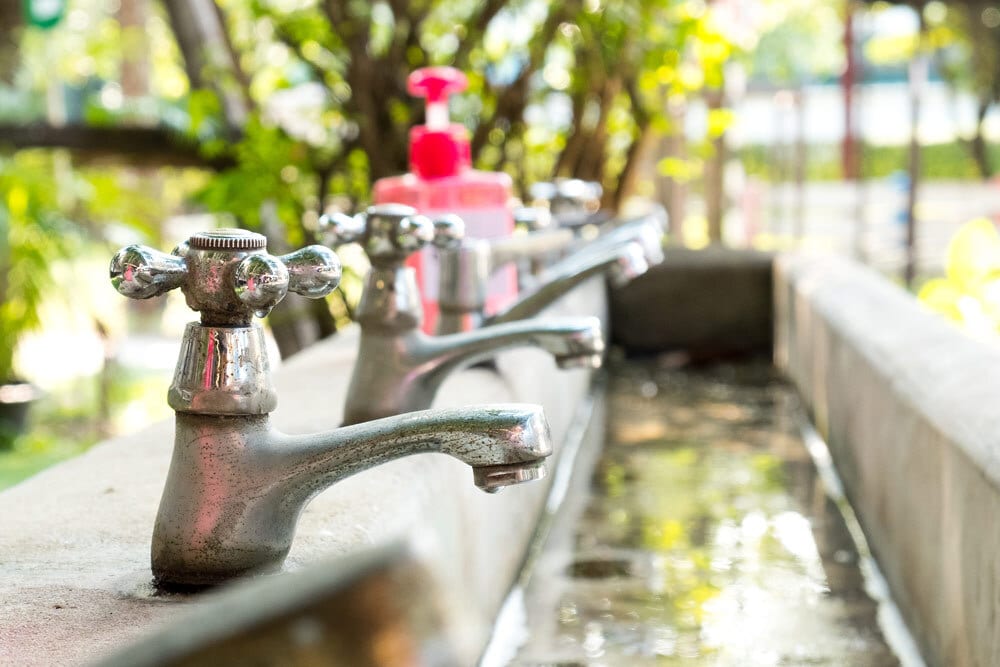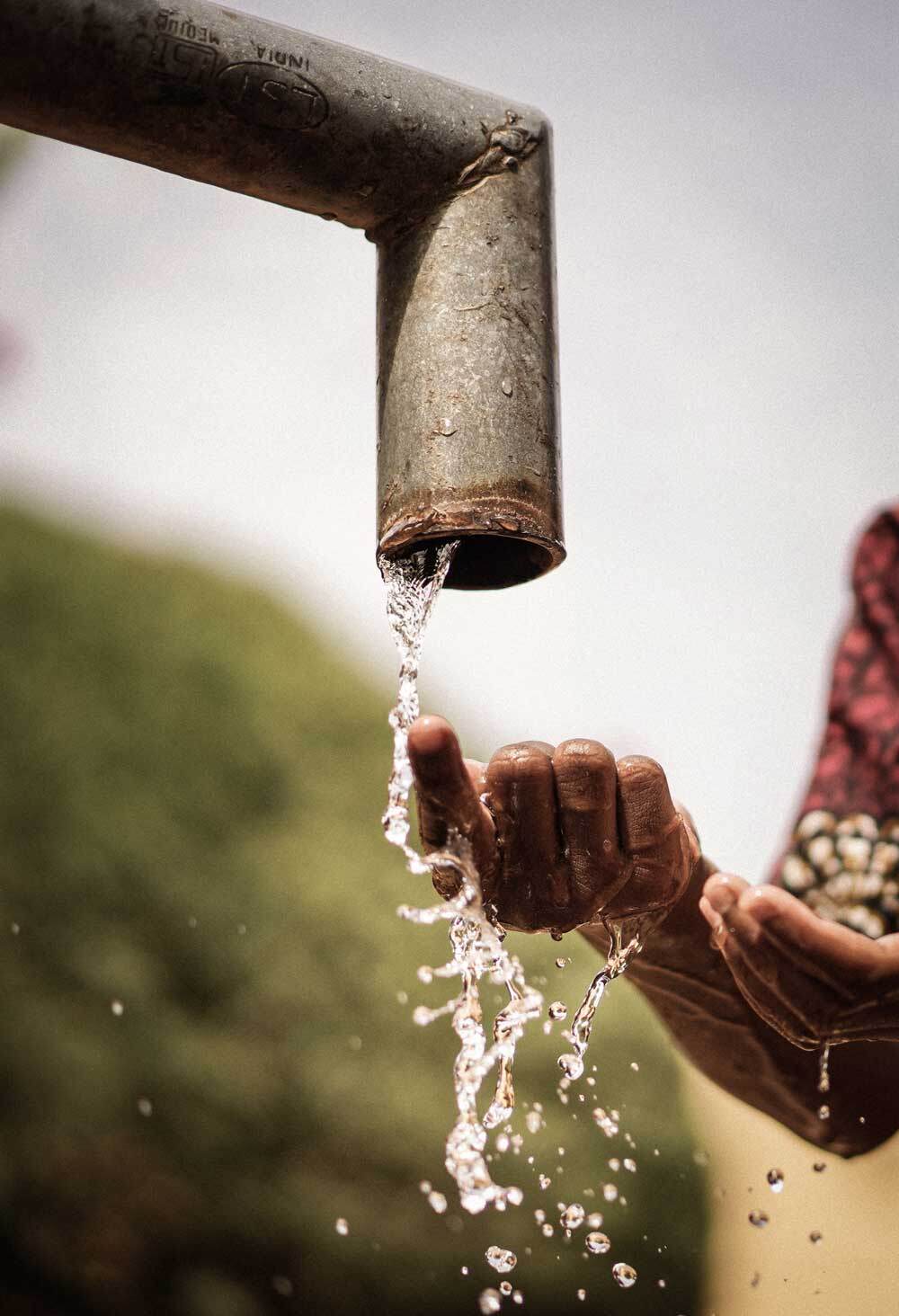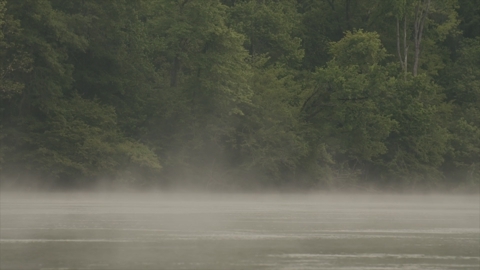
Having problems viewing this digital year in review, or would prefer to view it offline? Click below.
“If there is magic on this planet, it is contained in water."
Loren Eiseley (1946): The Immense Journey, p.15
Welcome to SIWI's year in review, a look back at our highlights and achievements from 2023.
Year in review
2023
Founded in 1991, Stockholm International Water Institute has grown into a world leading water organization, a specialist in water governance, a thought leader, and the host of many influential platforms and programmes. Importantly, defining SIWI means being aware of an additional fact: SIWI is, above all else, its people, for it is they who make it a place of passion, integrity, and inclusiveness.
For us at SIWI, 2023 was a year filled with milestones. This year in review shines light on just a small selection of many remarkable moments, including highlights from the world’s leading water conference, winners of the Stockholm Water Prizes, examples of cutting-edge research, as well as our impactful international operations - ranging from advocacy on the global stage to local capacity building projects around the world.
This year in review is a story of diversity – of backgrounds and languages – as well as the variety of things we do to achieve our unanimous goal of a water-wise world. Learn how we, through changing how water is valued, strive towards a future that is sustainable, just, and water-secure – together as one SIWI.
Foreword
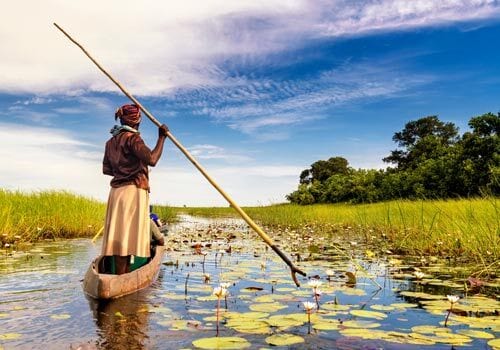

MISSION
SIWI’s mission is to strengthen water governance for a sustainable, just, and water-secure future.

SIWI at a glance
In 2023, we produced...
We are...*
In 2023, we had...
Throughout 2023, SIWI experts were active in over 80 countries.
Spanning four continents, SIWI’s offices are based in Stockholm, Aman, Bogotá, and Pretoria.
*as at the 31 December 2023
staff members
93
nationalities
34
languages spoken
36
Publications, including reports, policy briefs, and tool kits.
0
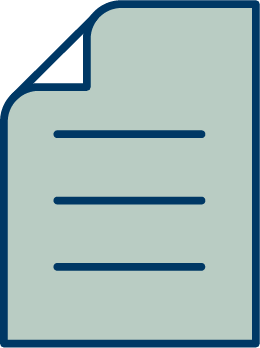
News items, including both SIWI and sector-wide updates.
0
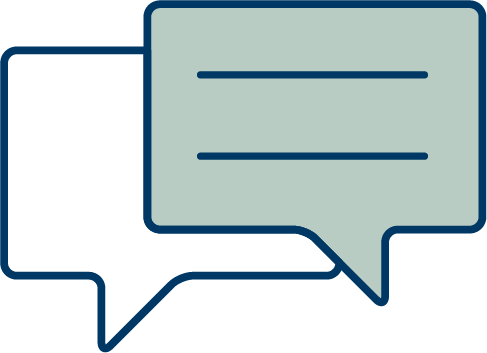
Visitors to our website
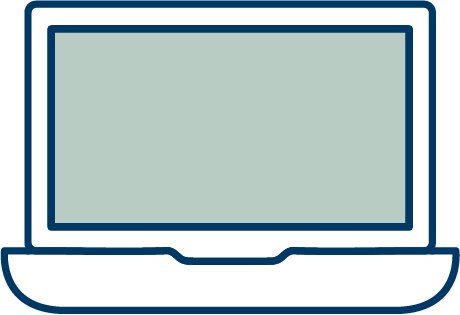
200K
Social media followers
114K
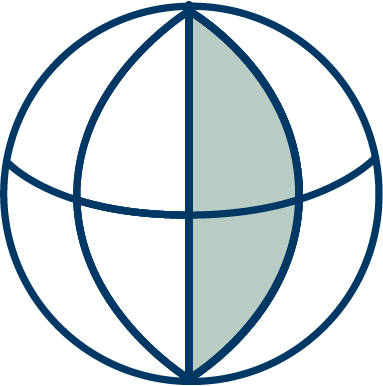
Social media impressions
2.9M
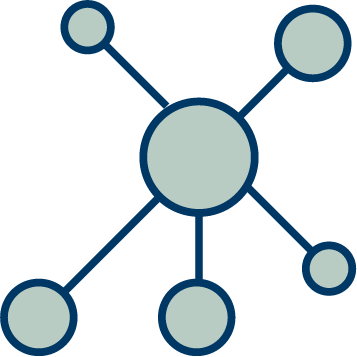
Social media engagements
178K
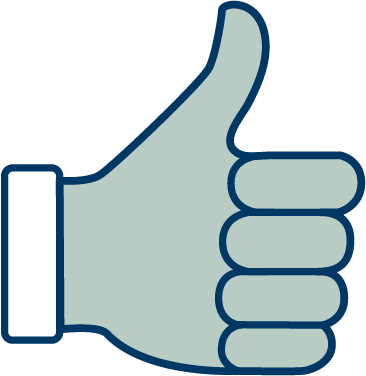
All our publications are freely available in the resource library on our website.
SIWI at a glance
We are...*
In 2023, we produced...
In 2023, we had...
Throughout 2023, SIWI experts were active in over 80 countries.
Spanning four continents, SIWI’s offices are based in Stockholm, Aman, Bogotá, and Pretoria.
*as at the 31 December 2023
staff members
93
nationalities
34
languages spoken
36
Publications, including reports, policy briefs, and tool kits.
0

News items, including both SIWI and sector-wide updates.
0

Visitors to our website

200K
Social media followers
114K

Social media impressions
2.9M

Social media engagements
178K

All our publications are freely available in the resource library on our website.
SIWI at a glance
We are...*
In 2023, we produced...
In 2023, we had...
Throughout 2023, SIWI experts were active in over 80 countries.
Spanning four continents, SIWI’s offices are based in Stockholm, Aman, Bogotá, and Pretoria.
*as at the 31 December 2023
staff members
93
nationalities
34
languages spoken
36
Publications, including reports, policy briefs, and tool kits.
0

News items, including both SIWI and sector-wide updates.
0

Visitors to our website

200K
Social media followers
114K

Social media impressions
2.9M

Social media engagements
178K

All our publications are freely available in the resource library on our website.
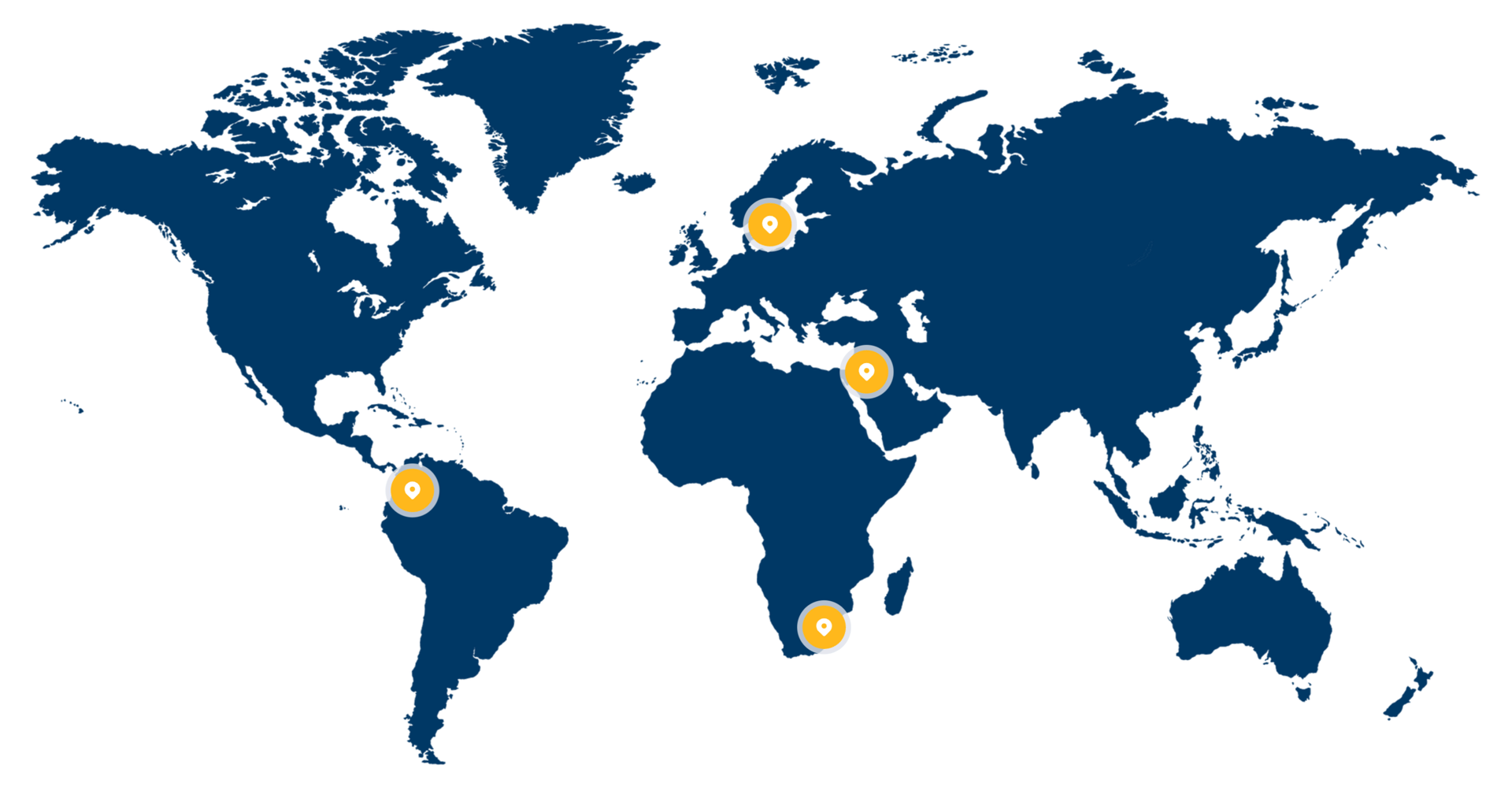
Swedish International Development Cooperation Agency (SIDA), United Nations International Children's Emergency Fund (UNICEF), Netherlands Ministry of Foreign Affairs, United Nations Development Programme (UNDP), Swedish Agency for Marine and Water Management, Leopold Bachmann Foundation, Xylem, Inter American Development Bank (IDB), United States Department of State, Grundfos Foundation, Swedish Forest Agency, Swedish Ministry for Foreign Affairs, Netherlands Ministry of Infrastructure and Water Management, and Deutsche Gesellschaft für Internationale Zusammenarbeit (GIZ).
SIWI's audited 2023 financial report will be available May 2024.
View our audited 2022 financial report.
In 2023, SIWI’s biggest donors included:
HIGHLIGHT OF THE YEAR
At last, water at the heart of the global agenda
March 2023 will be remembered by the water community. Around 10,000 delegates assembled in New York for the UN 2023 Water Conference, the first such event since 1977 and a beacon of hope for those who want to see the most valuable resource on the planet rise in importance on the political agenda. SIWI’s mission at UN 2023 was to use and share its expertise and support traditionally marginalized groups in participating in the conference. Efforts around the latter had ramped up already in the years before the conference.
Supporting inclusion
Ultimately, the Women in Water Diplomacy Network, which is part of the Shared Waters Partnership programme, supported conference accreditation applications from members as well as visa processes, and organized grants through a dialogue process with the Government of the Netherlands and its Stakeholder Engagement Fund. In the end, many members from various contexts and professions were able to participate and share their rich expertise and experiences.
Similar efforts were made by the UNDP-SIWI Water Governance Facility, which informed a range of Indigenous Peoples about the conference, connected different Indigenous Peoples with each other, organized locations for events, and provided support in giving input to conference documents as well as visa and accreditations.
Enhancing good water governance
The conference brought new momentum for water, with a key outcome being the development of the Water Action Agenda (WAA), consisting of over 800 voluntary commitments from UN Member States and stakeholders. Prior to the conference, SIWI formulated its own WAA commitment, contributed to five others, outlined positions for key actions that must be taken, as well as supported the communications of New York Water Week, which took place simultaneously to UN 2023.
Speaking in Interactive Dialogue 5 on the Decade for Action at the UN 2023 Conference, SIWI’s former Executive Director Torgny Holmgren described the achievement of the Sustainable Development Goals (SDGs) as a collective action problem and offered World Water Week as an annual platform to move the WAA forward in collaboration with others. Overall, SIWI experts were involved in over 40 events and co-convened 12, several of which took place within the UN Headquarters.
Undoubtedly, UN 2023 was a milestone in the UN Water Action Decade and one that hopefully will set a new pace for water action. Reasons for hope exist, as the next UN Water Conference is scheduled for 2026, only three years after the last one. SIWI is continuously engaged in the Water Action Decade and the global arena. In 2023 this included the High-Level Political Forum on Sustainable Development, a moment to formally review SDG6, revisit the outcomes of UN 2023, and move forward towards the SDG Summit and other processes to highlight the potential of water for a more sustainable future.
More than 46 years after the last United Nations (UN) Water Conference, the international community gathered in New York to advance efforts around safe water and sanitation. A SIWI delegation was on site, providing expertise and supporting inclusion.
“The UN 2023 Water Conference was an important moment for helping increase the recognition of Indigenous Peoples’ voices, perspectives, and world views on water. I left it feeling like it was one of the best times I have had at a conference.”
SIWI’s David Hebart-Coleman
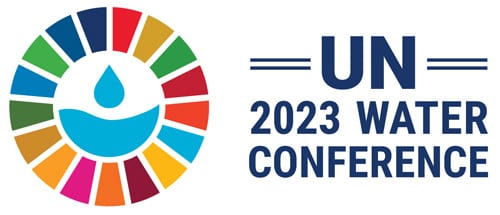
Organization developments
Organization developments
HIGHLIGHT OF THE YEAR
Driving innovation at World Water Week 2023
In August, SIWI hosted the world’s leading water conference at the Waterfront Congress Centre in Stockholm. What happened during the five conference days?
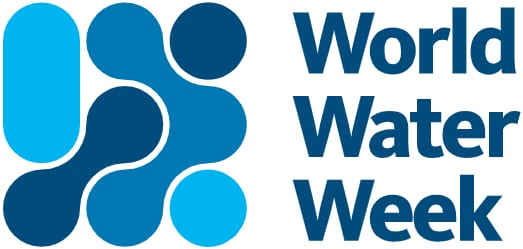
World Water Week 2023 will be remembered as a year with record numbers. Around 15,000 participants from 193 countries and territories joined online and on site – a 170% increase compared to 2022. More than ever before, decision makers from around the world were truly united for water. The global representation was the result of a team effort between partners and over 500 convening organizations, which enabled a strong hybrid format with free online participation.
The 2023 theme was 'Seeds of Change: Innovative Solutions for a Water-Wise World'. Over five conference days, 300 sessions shed light on how innovation can help solve the water crisis. One aspect that clearly came out of the conversations was that innovation goes far beyond technology. It can, for example, refer to our values and questions such as who gets to be part of the conversation.
World Water Week - a platform for everyone
SIWI has put inclusivity at the heart of World Water Week for a long time. This is reflected in many purpose-driven initiatives that aim to promote the inclusion of traditionally marginalized perspectives in the conference.
This year, for the first time, World Water Week had a special focus on Indigenous Peoples’ knowledge. Representatives from more than 20 groups were present and shared their experiences. Over 50 percent of conference participants were female, whilst 41 percent were under the age of 35. Importantly, World Water Week 2023 reached representatives from different types of economies, with over 34 percent of participants coming from low and lower middle-income countries.
The conference also gave a space to prepare and follow up on key political processes and international policy events, for example, through a High-Level Panel that assessed progress made since the UN 2023 Water Conference, and sessions held in preparation for the SDG Summit and the climate Conference of the Parties 28 (COP28).
“World Water Week is a pre-eminent industry engagement conference for Arup, and we have been delighted to work in partnership with SIWI for many years, actively engaging and contributing meaningful content to the agenda. As a global platform to help place water at the heart of climate action, as well as to support, promote, and enable Young Water Professionals to participate and engage, World Water Week continues to go from strength to strength.”
Mark Fletcher, Global Water Leader, Arup.

Every year the prestigious Stockholm Water Prize and the Stockholm Junior Water Prize are awarded during World Water Week. The awards help to highlight water challenges to a wide audience, promote innovation, and showcase solutions towards a water-wise future. Who were 2023's Prize winners and why did they receive the world’s most prestigious water awards?
The 2023 Prize winners
Stockholm Water Prize Laureate Professor Andrea Rinaldo
“I am humbled by, and proud of, following in the footsteps of previous laureates, especially those I know – or knew and miss sorely – and admire wholeheartedly,” said Professor Andrea Rinaldo on receiving the Stockholm Water Prize.
Rinaldo received the Prize for his research on river networks. The nominating committee said: “Professor Rinaldo […] has uncovered the key connections between river networks and the spread of solutes, aquatic species, and diseases.”
The Stockholm Water Prize has been awarded annually since 1991. The award is handed out through the Prize’s patron, His Majesty the King Carl Gustaf of Sweden. The Prize is often described as the Nobel Prize of water. The Founding Partners of the Prize are Stockholm Water Foundation, Bacardi, Xylem, Grundfos, the Water Environment Federation, and Ålandsbanken.
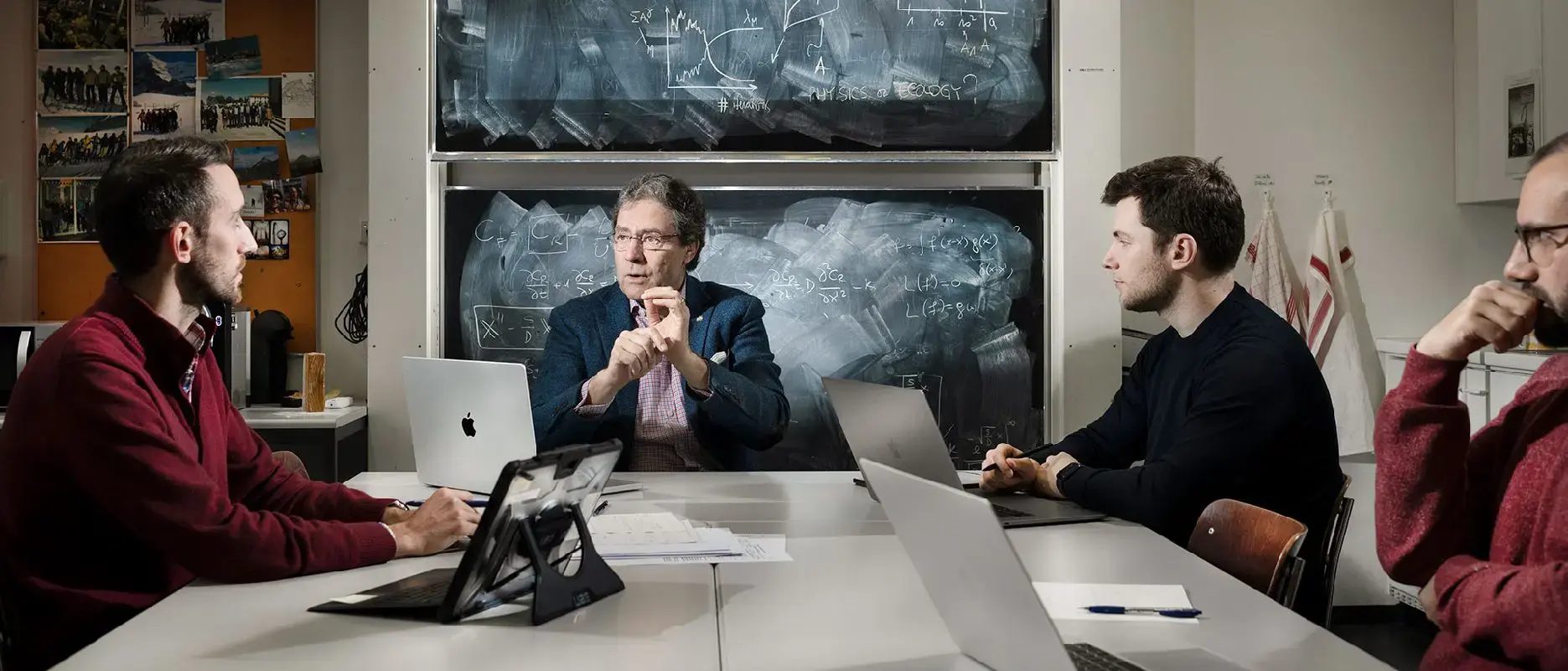
Stockholm Junior Water Prize winner Naomi Park
“I never realized that I would get to this point. It is very much a shock right now,” said Naomi Park right after receiving the Prize. In her research project, Park developed a method to remove contaminants from the ocean. The Jury noted that “the winner is taking a troublesome waste product and using it to help solve a number of the most pressing issues we face in the modern world.”
The Stockholm Junior Water Prize has been awarded annually since 1997. The selection process includes a global competition between thousands of students between 15 to 20 who conduct research to solve water challenges. Together with other finalists, Park has now joined WaterTank, the Prize’s alumni network, which helps finalists take their projects from idea to implementation. The award is handed out through the Prize’s patron, Her Royal Highness Crown Princess Victoria of Sweden. The Global Founding Partner of the Prize is Xylem.
Read an interview with Naomi Park.
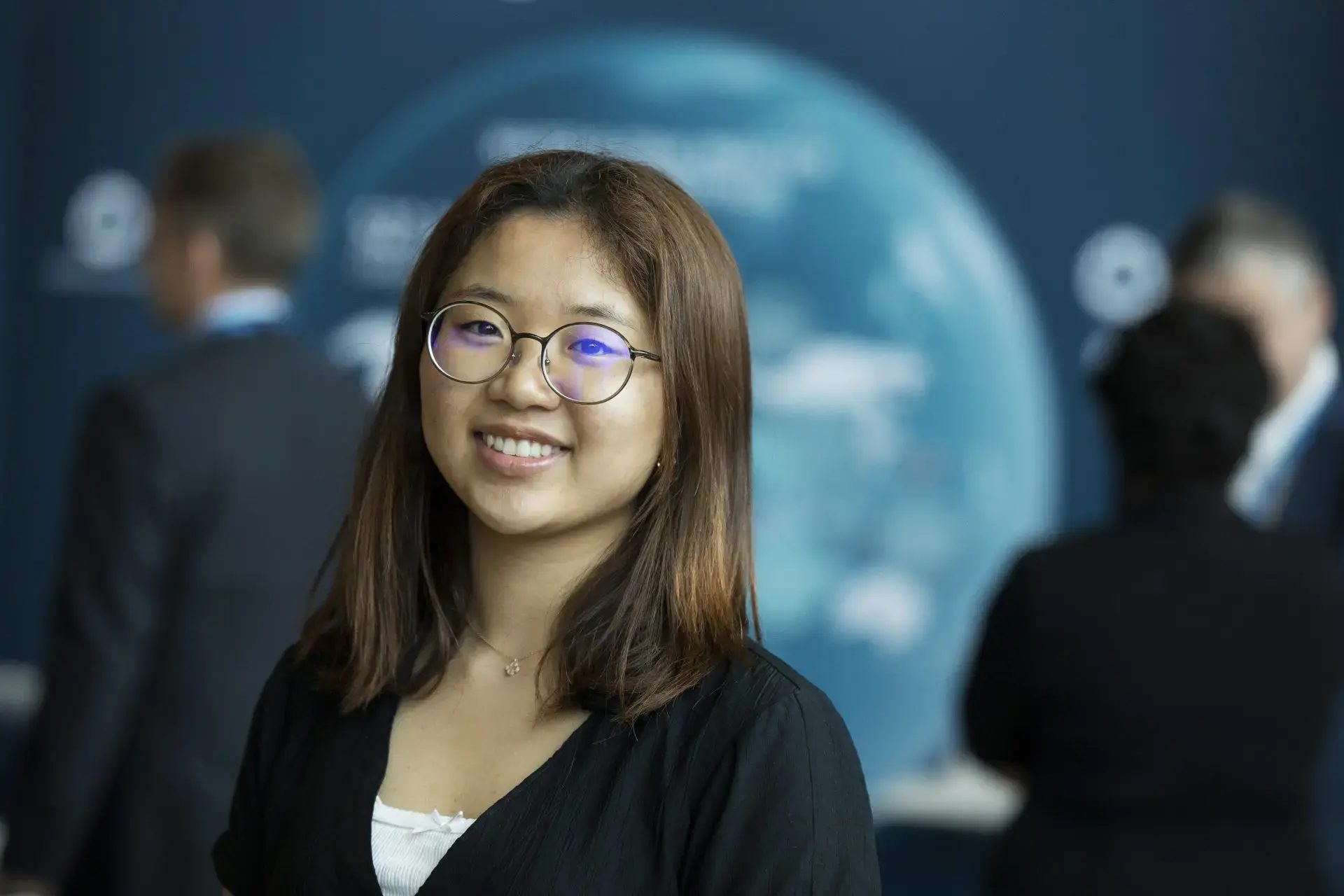
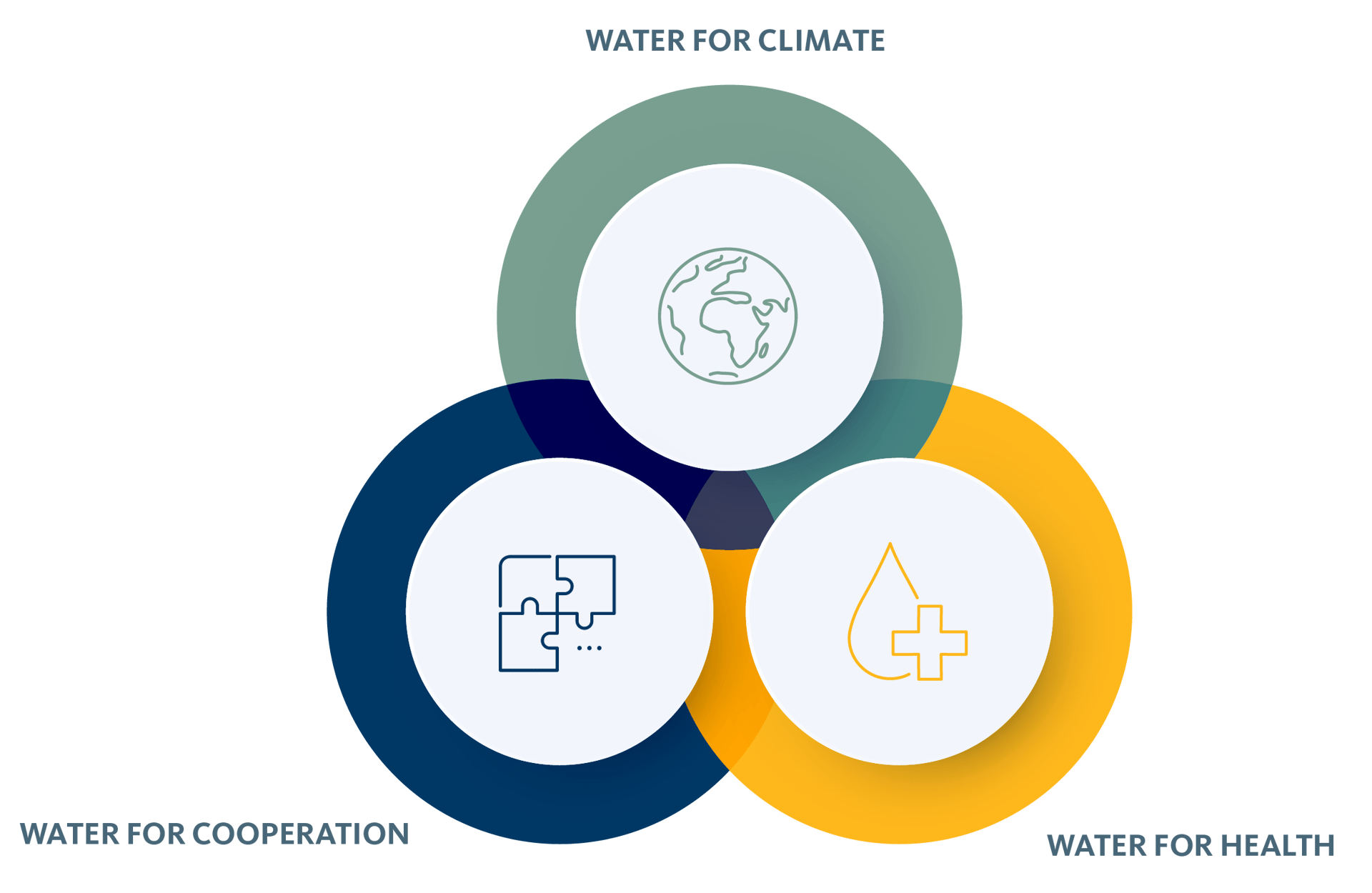
A sustainable, just, and water-secure future…
…is possible. Reaching it begins with recognizing the interlinkages between the water crisis and other global challenges. Water provides ample opportunities for more impactful policies with co-benefits across different fields. It can be the lever that turns the tide to realize the 17 SDGs. Taking this to heart, SIWI experts work holistically across different areas to unlock powerful water solutions towards a more sustainable future. Here is a selection of our 2023 operational highlights from around the world, thematically grouped along the lines of climate, cooperation, and health.
Water for climate
Water is the make-or-break factor for impactful climate action. Through transformational adaptive water management, we can build resilient societies with strong benefits for people and the planet. In 2023, SIWI’s operations supported water and climate action from local capacity building to advocacy on the global stage.
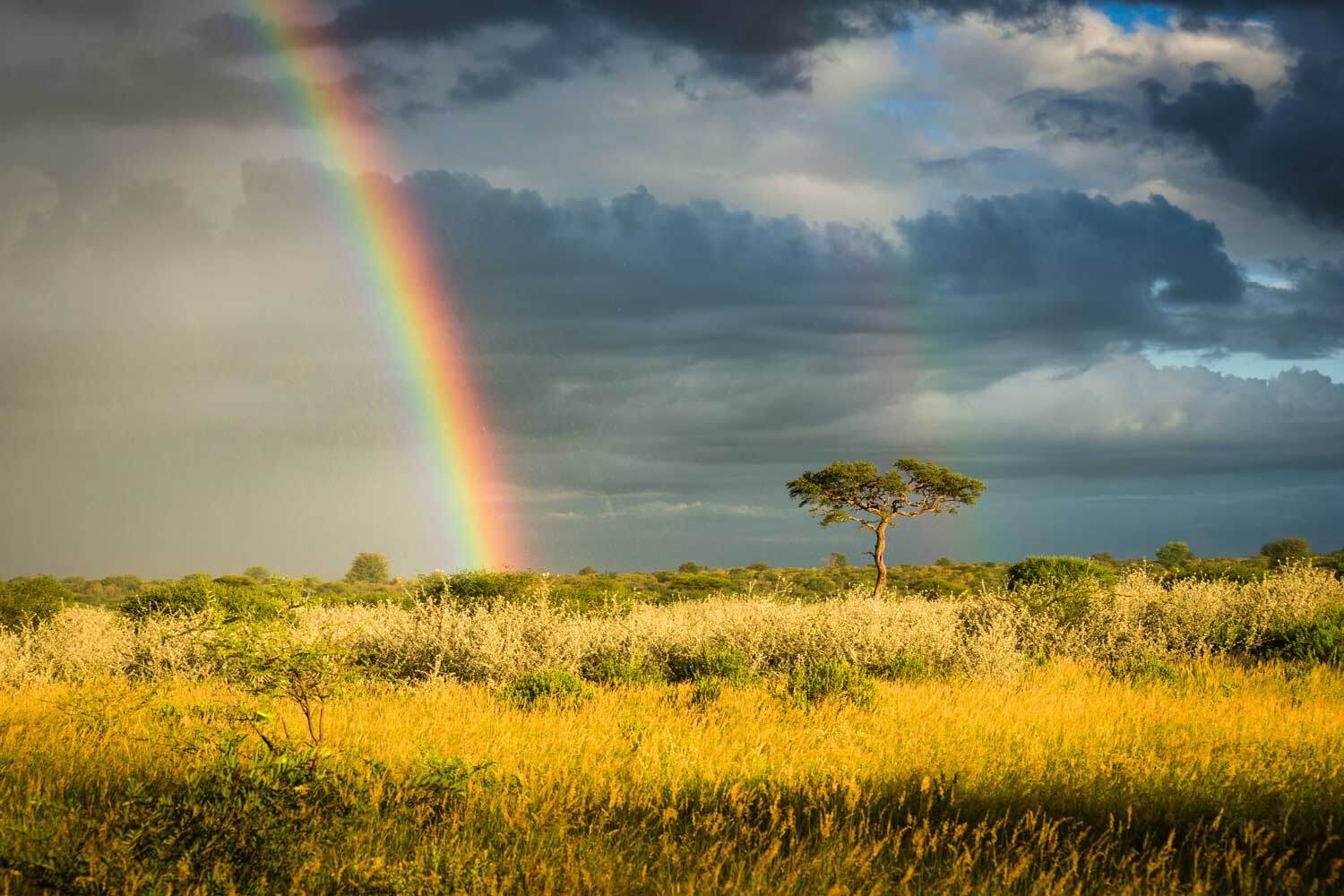
Water for cooperation
All life and ecosystems require water. Because of this, the most precious resource on the planet has the unique power to be a platform for peace and cooperation. SIWI works together with a broad range of actors to establish cooperative relationships, break down silos, and ensure inclusive and effective decision-making across sectors, policy fields, and borders.
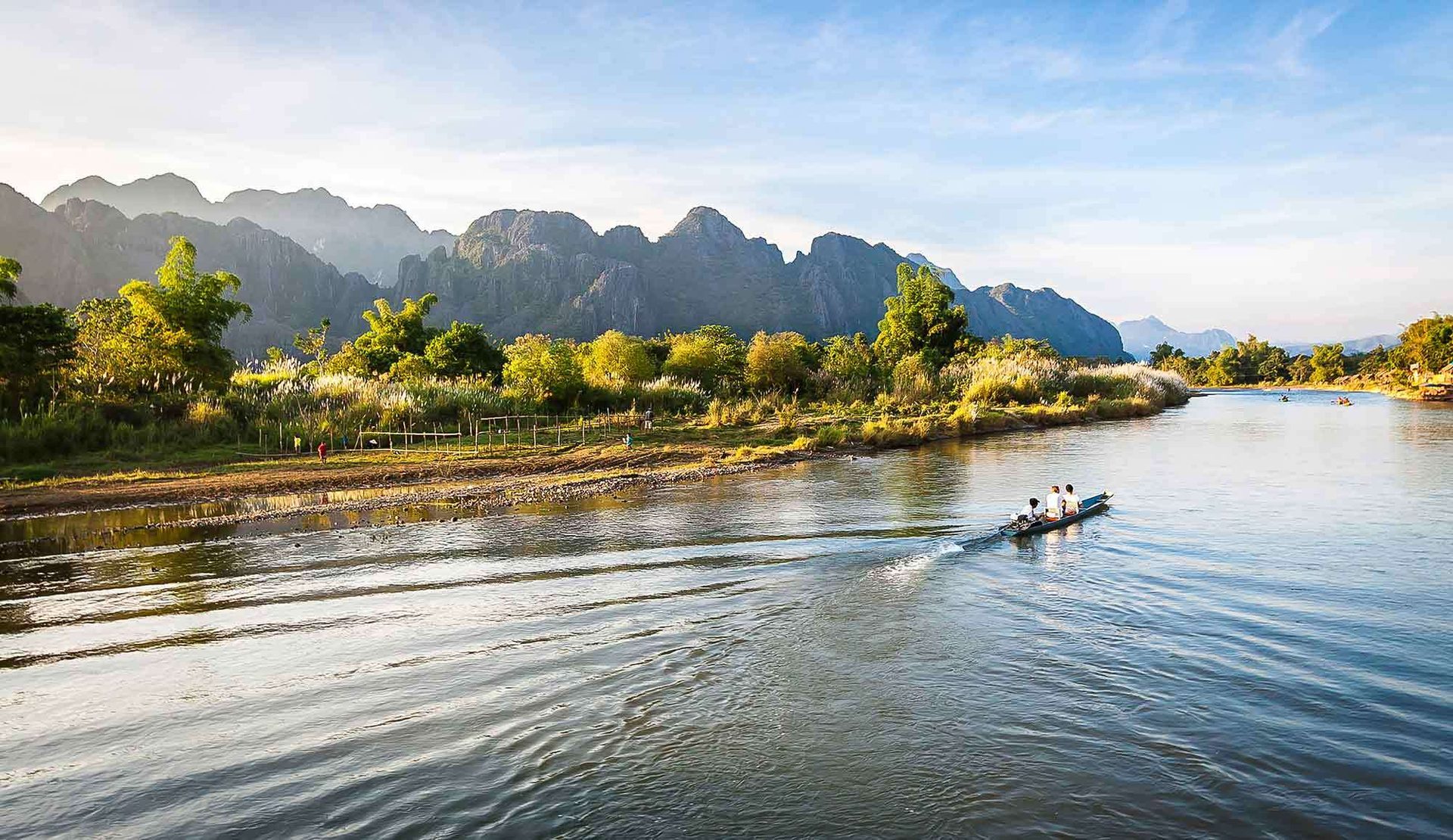

Water for health
Safe water and sanitation play a key role in preventing many health risks. However, the co-benefits of safe WASH go far beyond universal health, and can greatly contribute to, amongst other things, poverty alleviation, education, and gender equality. SIWI develops a wide range of solutions around water and health by combining research, policy, and practice.

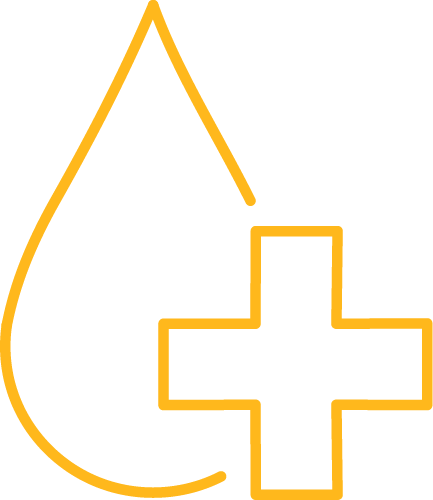
Water for climate
Water is the make-or-break factor for impactful climate action. Through transformational adaptive water management, we can build resilient societies with strong benefits for people and the planet. In 2023, SIWI’s operations supported water and climate action from local capacity building to advocacy on the global stage.

In the end, a united water community was heard far and wide at COP28 with 65 sessions in the Water for Climate Pavilion and upwards of 150 water-related events happening outside of it. The collective successfully leveraged its influence toward two key outcomes that included significant references to water: the Global Stocktake and the Global Goal on Adaptation (GGA). Reflecting on the GGA outcome, which concluded eight years of efforts, SIWI’s Dani Gaillard-Picher highlighted: “Water is now recognized as being at the heart of the GGA and climate adaptation.”
The UNDP-SIWI Water Governance Facility provided support to the Nigerian National Council on Climate Change and the Federal Ministry of Water Resources through UNDP’s Climate Promise II. Ultimately, several water-related deliverables were included in the programme, including the preparation of climate adaptation action plans in partnership with two basin authorities that address climate and water challenges in parallel, as well as the enrolment of Nigeria in the globally significant Water Tracker.
Following consistent engagement between the Global Environment Facility (GEF) and SIWI, GEF is supporting regional investments that apply the integrated source-to-sea approach in the creation of multi-state cooperation frameworks in transboundary deltas through its GEF-8 programme. At the 22nd GEF Large Marine Ecosystem (LME) Consultative Meeting, the International Waters learning platform, IW:LEARN, for the first time, invited river basin organizations to participate with their related LME’s in a world café dialogue. This has resulted in improved source-to-sea collaboration.
Another essential part of SIWI’s long-standing capacity building work around resilient landscapes is the Locally Controlled Forest Restoration (LoCoFoRest) project, which is a one-year training programme that builds capacity in forest landscape restorations, targeted at young professionals from various sectors and institutions. As one of the implementing partners, SIWI was involved in workshops in Burkina Faso, DR Congo, Ethiopia, Laos, Senegal, and Togo. In 2023, workshops were offered in French for the first time.
“What participants have taken away from the workshops and succeeded in doing is huge,” said Lotta Samuelson, Senior Manager at SIWI. “Many mentioned that this is the first time anyone has ever talked to them about the key role of water in forest-landscape restoration.” The LoCoFoRest project is financed by SIDA and led by the Swedish Forest Agency.
To further disseminate the knowledge generated by the report, SIWI organized a series of webinars in spring 2023, which focused on cross sectoral and integrated approaches to climate action, as well as freshwater risks and opportunities, such as in energy and land systems. The webinars received wide interest with hundreds of people watching live and on demand on SIWI’s YouTube channel.
One exemplary outcome, with support from SIWI and other partners, is that Bangladesh’s National Adaptation Plan now prioritizes the WASH sector in two adaptation interventions. Further, SIWI conducted climate risk assessments in 11 countries and facilitated 12 multi-stakeholder workshops in Africa, Asia, as well as Latin America and the Caribbean.
In the workshops, SIWI applied a range of highly adaptable and participatory methods. One being the WASH Bottleneck Analysis Tool (WASHBAT), which helps decision makers work out an action plan to overcome hurdles to climate resilient WASH services. Jovana Garzón Lasso, Programme Manager at SIWI, outlines: “Having workshops with all main actors in one place, with a high interest in finding solutions is something very special. Climate impacts are increasingly felt in Latin America and the Caribbean. Coming from this region, I feel very grateful to be there as a facilitator and see actors find solutions to improve the sector.”
Water for cooperation
Water is the make-or-break factor for impactful climate action. Through transformational adaptive water management, we can build resilient societies with strong benefits for people and the planet. In 2023, SIWI’s operations supported water and climate action from local capacity building to advocacy on the global stage.

Ruth Mathews, Senior Manager at SIWI, outlines: “With S2S we are breaking down silos. In 2023 we had a very fruitful workshop where representatives from river basins and regional seas came together to discuss new ideas on how to jointly tackle pressing issues.” This session motivated the inclusion of S2S in the ministerial declaration at the 23rd Meeting of the Contracting Parties to the Barcelona Convention, which calls to “enhance interregional cooperation between the Mediterranean, the Danube, and the Black Sea, through a ‘Source to Sea’ approach.” Mathews explains: “It used to be just the S2S Platform and its partners advocating for S2S before others picked it up, but now the initiative is gaining traction in its own right.”
In 2023, the project reached a milestone when SIWI co-organized an investment forum in cooperation with the Zambezi Watercourse Commission (ZAMCOM), the Global Water Partnership Southern Africa, the Centre for International Forestry Research and World Agroforestry, and the Ministry for Lands and Water Affairs of the Republic of Botswana.
The Zambezi Rainfed Agriculture Investment Forum brought together over 80 participants from 17 countries, from diverse sectors and affiliations. During the Forum, ZAMCOM member states pledged to support enhanced rainfed agriculture in a statement of intent. Additionally, a substantial grant was awarded to one of the nongovernmental organizations that SIWI partners with. Xanani Baloyi, Programme Officer at SIWI, sees the Forum as part of a larger positive trend: “More and more actors are acknowledging the value of green water.”
Building on the momentum created in 2023, SIWI and key partners conceptualized the Lunyangwa Project, that will test and scale an incentive-based model for rainfed agriculture in Malawi and the Zambezi Watercourse region. SIWI is now approaching funding partners to support the implementation of this five-year payment for ecosystem services project.
The handbook provides cutting edge knowledge for anyone involved in negotiations around water. Due to a contribution from UNESCO, the book will be published with open access, ensuring the widest dissemination possible.
The Water Diplomacy Handbook will have its own website, allowing for the additional submission of case studies to the book. Even before publication, discussions are ongoing to develop additional materials, such as a training course based on the handbook.
Throughout the year, the Network held capacity building workshops on topics such as WASH and digitalization, and co-convened events like 'Elevating Women’s Leadership for Effective Transboundary Water Cooperation'. This event was co-convened by SIWI, the United States Institute of Peace, and the Environmental Law Institute (ELI). A particular highlight for the Network was the UN 2023 Conference, where they hosted a side event inside the UN Headquarters, completely filling the event room.
Ahead of UN 2023, SIWI, in partnership with the ELI, the International Joint Commission, the Lincoln Institute of Land Policy, and the University of Arizona, convened 'The Water Diplomacy Symposium'. The event elevated the voices of communities that are often excluded from high-level water diplomacy dialogues such as women, youth, and Indigenous Peoples, and allowed for experience sharing and knowledge exchange. It brought together 80 participants out of which 97% strongly agreed or agreed that the Symposium was relevant to their professional work. To round off a remarkable year, the Network held a year in review event which was joined online by over 120 people.
Throughout 2023, the Hub engaged with a broad range of actors. At COP28, they hosted a webinar on information influence campaigns in the context of climate and water: The battle for truth in water, climate, and environment. Furthermore, a breakfast briefing in the Swedish Parliament, organized by the Hub, drew in representatives from five different political parties, from across the political spectrum. A particular highlight was the UN 2023 Conference, where the Hub organized the official side event hosted by Sweden and Somalia, and co-organised the event: Commitments to Accelerate Cooperation on Water, Environment, Climate, and Peace, alongside SIWI, SIPRI, and the Permanent Mission of Sweden to the UN.
Reflecting on the year, Katie Goldie Ryder, Programme Manager at SIWI, outlines how the knowledge of many actors was advanced: “During our different events we engaged with a range of different communities including decision-makers, and significantly increased their understanding of the nexus between the environment, climate change, and security. The informal discussions we had with participants were seen as vital to exchange solutions.”
Water for health
Safe water and sanitation play a key role in preventing many health risks. However, the co-benefits of safe WASH go far beyond universal health, and can greatly contribute to, amongst other things, poverty alleviation, education, and gender equality. SIWI develops a wide range of solutions around water and health by combining research, policy, and practice.

Since its inception, GO-Water has advanced water governance capacity in Iraq, Uganda, Bolivia, Colombia, and Peru. The programme adapts its focus area based on the needs identified in a particular locality, such as WASH regulation (WASHREG) in rural areas of Colombia, or coordination and cooperation in Uganda. Participants have reported that GO-Water has brought a wide range of positive results including improved governance and efficiency within their authorities, the creation of an environment of trust, improved communications, as well as significant improvements to regulatory frameworks.
Further to its local and national operations, GO-Water has created a framework around water governance for low and middle income countries, and has developed new partnerships with UNDP Cap-Net and ADERASA, as well as an online course on WASHREG in Spanish and English with support of UNDP Cap-Net. In 2023, GO-Water concluded phase one of the project and is currently exploring new partnerships for phase two.
The course increases a country’s resilience to health crises such as COVID-19, by putting emphasis on the relevance of IPC to school operations and the implementation of IPC measures in schools including improved WASH. The course was implemented in several countries during 2023, such as, Cambodia, Malawi, and the Philippines.
In the Philippines, the only country where full data is available, over 55,000 teachers and schools’ personnel have completed the course, with 79.3% rating it as excellent.
The portal launch followed several years of gathering experiences around the WASHREG approach, which was implemented with SIWI support in Colombia, Bolivia, Ecuador, Liberia, and Iraq, and includes the development of action plans for regulatory agencies in these countries. Now WASHREG knowledge from around the world is compiled in one place and is publicly available: “There are already a huge number of experiences and solutions on the webpage. This is a big step forward in disseminating knowledge around WASH regulation,” concluded Dr. Laura Vargas, Advisor at SIWI. In the future, the portal will also be made available in Spanish and French.
The portal is part of a set of guidance documents produced under the Accountability for Sustainability partnership between UNICEF, SIWI, and the UNDP-SIWI Water Governance Facility, which aims to increase sustainability of WASH interventions through the improvement of governance in service delivery frameworks.
As an outcome of that process, SIWI has been appointed to contribute to WHO’s Guidance on Waste and Wastewater Management in Pharmaceutical Manufacturing report.

All of SIWI’s work is guided by our cross-cutting issues (CCI) of gender equality, youth empowerment, and a human rights-based approach (HRBA). We contribute to inclusive and effective water governance by mainstreaming these perspectives into all our projects, platforms, and programmes.
Here are some examples of our 2023 CCI work.
Cross-cutting issues
Oftentimes, entire projects are dedicated to improving human rights, such as the Sanitation in Public Spaces intervention, which closed in 2023. The project revolved around access to toilets in public spaces and worked to ensure these became more inclusive, safe, and accessible for vulnerable groups such as the elderly, transgender people, homeless people, and people with disabilities. The project assessed the situation in two Latin American cities and in close collaboration with city governments, subsequently held workshops on challenges and potential solutions. The project was funded by IDB.
In 2023, SIWI further utilized its expertise around gender equality to support its partners. SIWI provided a gender analysis to the water projects implemented by the Embassy of the Kingdom of the Netherlands in Mozambique by assessing the level to which gender was mainstreamed within the projects. SIWI presented best practices that would be beneficial to the selected Dutch water projects and provided recommendations aimed at delivering gender transformative initiatives.
One youth project that started in 2023 is Youth for Water and Climate Governance, a six-month programme with the aim of strengthening youth empowerment. The programme focusses on the development of capacities of young people between the ages of 15 and 25 years, provides knowledge on climate change and WASH, and tools for professional development. The programme includes both workshops and personal mentoring and is financed by SIDA.
Stockholm International Water Institute
Organisation Number: 802425-8702
VAT Number: SE 802425870201
Contact us: siwi@siwi.org
©2024 Stockholm International Water Institute
Author and coordinator: Jakob Schabus, design and build: Emy Welin and Jorji Frederiksen.
Visiting address: Hammarbybacken 31
Postal address: Kabyssgatan 4D
120 30 Stockholm
Sweden
